

THE PROPERTY ISSUE
BARGAIN HUNTERS DRIVE PROPERTY MARKET REBOUND

PRIVATE EQUITY BETS ON HONG KONG REAL ESTATE
HOW TOKENISATION AND TECH ARE REWRITING HK’S PROPERTY RULES

TIGHTER CYBER LAWS PUT PRESSURE ON INSURANCE COSTS
TOURISTS OUT TO SEE K-POP, MANDOPOP SPEND MORE
Established 1982
Editorial Enquiries:
Charlton Media Group Hong Kong Ltd Room 1006, 10th Floor, 299 QRC, 287-299 Queen’s Road Central, Hong Kong | +852 3972 7166
PUBLISHER & EDITOR-IN-CHIEF Tim Charlton
ASSOCIATE PUBLISHER Louis Shek
EDITORIAL MANAGER Tessa Distor
PRINT PRODUCTION EDITOR Eleennae Ayson
LEAD JOURNALIST Noreen Jazul
PRODUCTION TEAM Gwyneth Bejer
Diana Dominguez
Frances Gagua
Vincent Mariel Galang
Jilliane Rae Manuel
Marielle Medina
Olivia Tirona Rain Zhao
EDITORIAL RESEARCHER Angelica Rodulfo
GRAPHIC ARTIST Cathlyn De Raya
EDITORIAL ASSISTANT Vienna Verzo
COMMERCIAL MEDIA TEAM Jenelle Samantila Dana Cruz
Danielle Goh
ADVERTISING CONTACTS Louis Shek +852 6099 9768 louis@hongkongbusiness.hk Shairah Lambat shairah@charltonmediamail.com
AWARDS Julie Anne Nuñez-Difuntorum awards@charltonmediamail.com
ADMINISTRATION Eucel Balala accounts@charltonmediamail.com
EDITORIAL editorial@hongkongbusiness.hk
SINGAPORE
Charlton Media Group 101 Cecil St. #17-09 Tong Eng Building Singapore 069533 +65 3158 1386
HONG KONG Room 1006, 10th Floor, 299 QRC, 287-299 Queen's Road Central, Sheung Wan, Hong Kong +852 3972 7166
MIDDLE EAST
FDRK4467, Compass Building, Al Shohada Road, AL Hamra Industrial Zone-FZ, Ras Al Khaimah, United Arab Emirates www.charltonmedia.com
Can we help?
Editorial Enquiries: If you have a story idea or press release, please email our news editor at editorial@hongkongbusiness.hk. To send a personal message to the editor, include the word “Tim” in the subject line.
Media Partnerships: Please email editorial@hongkongbusiness.hk with “Partnership” in the subject line.
Subscriptions: Please email subscriptions@charltonmedia.com. Hong Kong Business is published by Charlton Media Group. All editorial is copyright and may not be reproduced without consent. Contributions are invited but copies of all work should be kept as Hong Kong Business can accept no responsibility for loss. We will however take the gains.
Sold on newstands

FROM THE EDITOR
Investors are taking advantage of price corrections in Hong Kong’s property market, snapping up properties for their own use—from offices and student housing to luxury homes. Experts add that the city’s commercial property segment is also finding strength in its recovering stock market. Read more in our cover story on page 26.
Hong Kong has seen strong IPO and fundraising activity this year and is expected to welcome more dual listings from the Mainland following recent moves to lower public float requirements. On page 42, experts discuss how these changes could attract more A+H listings to the city.
Building on the momentum of Hong Kong’s stock market, newly appointed ZA Bank CEO Calvin Ng revealed plans to launch a Hong Kong stock trading outlet later this year. Learn more about the digital bank’s initiatives—from wealth management to crypto trading—on page 38.
Blockchain innovation is extending beyond finance—it’s now reshaping property. Real estate agents are advocating for tokenisation of assets to invigorate Hong Kong’s commercial market. Experts say the shift could cut transaction costs by up to 30%. Find out more on page 32.
Beyond the stories of innovation and transformation, this issue also recognises those making remarkable strides in real estate. Meet the 20 most notable real estate agents under 40 on page 28.

HongKongBusiness is a proud media partner and host of the following events and expos:




HongKongBusiness is available at the airport lounges or onboard the following airlines:








Tim Charlton







News from hongkongbusiness.hk
Daily news from Hong Kong
MOST READ



Hong Kong’s salary increase falls in 2025, but will recover in 2026
Hong Kong’s actual salary increase is at 3.7% in 2025, lower than in 2024, according to a report by advisory firm WTW. This is lower than the 4% in 2024, and the 2025 APAC average of 5.1%. Salary increases in the city are projected to rise back to 4% in 2026, according to the Salary Budget Planning Report by WTW.

Singapore-based fintech firm Chocolate Finance enters Hong Kong
Singapore-based fintech firm
Chocolate Finance has raised $117.7m in a Series A+ funding round and received approval to begin operations in Hong Kong. Nikko Asset Management led the funding round, with participation from returning investors Peak XV, Prosus, and Saison Capital, and founder Walter de Oude.
Improved certification scheme helps SMEs to go green
SMEs are taking centre stage in Hong Kong’s green building push, as the Construction Industry Council and the Hong Kong Green Building Council launch Certification Scheme 2.0 to boost sustainable construction practices. With over 1,000 certified green products to date, the majority have come from SMEs.

Tai and CSI Properties unveil "Central Crossing" in Central district
Wing Tai Properties and CSI Properties unveiled Central Crossing, a joint development in the Central district. Located at 118 Wellington Street, the project is set to be completed by mid-2026 and will combine Grade A office spaces, a luxury hotel, a lifestyle hub, and green open areas all whilst preserving heritage.
Hong Kong’s commercial real estate market faced growing pressure in the first quarter of 2025, with rising vacancy rates and cautious investor sentiment weighing on the office and industrial sectors. According to a Colliers report, demand for office space is shifting towards smaller units as rent levels decline.

Most firms miss Scope 3 emission baseline and mature transition plans
A new KPMG China and DBS Bank (Hong Kong) study revealed that just 10% of companies have mature transition plans aligned with the Ambition, Action, and Accountability principles recommended by the Transition Plan Taskforce. The joint research found that over half have yet to begin reporting Scope 3 emissions.

Wing
Hong Kong office demand shifts to smaller units in early 2025: Colliers


Stablecoin bill sharpens oversight and spurs regulated innovation
Hong Kong’s recently passed Stablecoins Bill raises the bar on transparency and compliance, whilst unlocking opportunities for innovation in the digital asset space, analysts said.
“Issuers will need to overhaul treasury transparency, implement robust realtime reserve attestations, and establish clear redemption mechanisms,” Elena Tzvetinova, chief operating officer at Reasoon Ltd., operating as London-based artificial intelligence fintech Eunice, told Hong Kong Business.
Stablecoin issuers should be clear about the reserves backing their tokens and provide mechanisms for users to redeem them for cash. Many, however, may not yet meet the bill’s standards.
“Many lack sufficient internal controls or risk frameworks that meet the bill’s standards,” Tzvetinova said in an exclusive interview.
Eunice recently launched a stablecoin due diligence and monitoring solution for compliance and risk oversight.
Banks are expected to reassess their exposure to stablecoins and review ties with
third-party providers to avoid unintentional noncompliance, she added.
Passed in May 2025, the Stablecoins Bill extends to fiat-referenced stablecoins designed to maintain a stable value against the Hong Kong dollar, whether issued domestically or overseas.
It additionally governs marketing and promotional activities, allowing only licensed issuers to offer or advertise their tokens to retail investors.
According to the Hong Kong Monetary Authority (HKMA), the framework is intended to strengthen investor safeguards and reinforce confidence in the digital asset market.
The measure follows months of industry consultation with banks, fintechs, and crypto associations, reflecting Hong Kong’s wider strategy to cement its role as a leading global hub for virtual assets.
The bill will also require any person or
entity that issues fiat referenced stablecoins— digital tokens pegged to currencies like the US dollar or Hong Kong dollar—to get a licence from the HKMA.
Only licensed issuers can advertise or sell stablecoins to retail investors in Hong Kong. The regime aims to enhance investor protection and public confidence in the digital asset sector, according to the central bank.
According to Tzvetinova, the law could position Hong Kong as a launchpad for bankgrade, interoperable stablecoins and serve as a gateway for regional digital currency initiatives.
Banks are already responding. ZA Bank Ltd.—Hong Kong’s first virtual bank—has been offering stablecoin reserve banking services since 2024 and is in talks with several potential issuers.
“We are prepared to meet diverse development needs as the market evolves,” said Calvin Ng, CEO at ZA Bank.
“The passage of the bill has injected confidence into the market, signalling a clear regulatory direction and paving the way for responsible innovation,” he said. “It has encouraged active engagement and strategic planning amongst industry players.”
Standard Chartered Hong Kong earlier said it plans to launch a Hong Kong dollarbacked stablecoin in partnership with Animoca Brands Corp. Ltd. and Hong Kong Telecommunications Ltd.
Potential and challenges
Tzvetinova sees new product potential for banks—from integrating stablecoins into existing products to partnering on issuance and developing products and platforms.
Cyrus Tong, chief compliance officer at DCS Card Centre Pte. Ltd., said stablecoins could support cross-border payments, programmable wallets, tokenised assets, smart escrow, and loyalty programmes.
“This could streamline settlements, reduce [foreign currency] friction, and attract institutional investors seeking regulated digital alternatives,” he said in a separate interview.
However, Tong warned of key challenges. “Interoperability with other regimes is critical to avoid fragmentation,” he said, adding that emerging risks such as cybersecurity threats and liquidity mismatches need regulatory attention.
Tzvetinova noted that whilst some issuers might exit the market, those who remain will be better positioned. Companies committed to Hong Kong would likely invest in infrastructure and compliance, she added.
The passage of the bill has injected confidence into the market, signalling a clear regulatory direction and paving the way for responsible innovation
The bill requires fiat-referenced stablecoin issuers to get a licence from HKMA

Experts warn fixed ride-hailing caps could hurt mobility
Hong Kong should adopt a “variable quota” system for online ride-hailing vehicles rather than a fixed limit, transport experts told Hong Kong Business, warning that rigid caps could hinder services and reduce mobility.
Ticky Chan, an officer at the Public Transport Think Tank of Hong Kong (PTTTHK), expressed concern over potential restrictions on ride-hailing numbers.
“Such restrictions would not only affect over 30,000 drivers but also significantly impact passenger services, such as longer waiting times
and greater difficulty in booking a ride,” he told the magazine.
Alok Jain, chief executive officer and managing director at TransConsult Ltd., said a vehicle cap is “a very straight-line approach for a very tech-driven operation.”
A flexible quota system that allows more vehicles during peak periods and fewer during off-peak hours is more appropriate, he added, noting that “supply should adjust rather than remain constant.”
The government has not disclosed what the vehicle quota will be.
A PTTTHK survey published on

3 June found that six of 10 Hong Kong citizens see no need for a cap, and if imposed, nine of 10 want it set no lower than the number of ridehailing vehicles.
The vehicle quota is part of a broader plan to regulate online ridehailing and ensure fair competition with heavily regulated taxis.
Chan said the cap is unlikely to boost taxi ridership. “Instead, it could lead citizens to drive themselves or use other transport modes, adding to road congestion. In an era of technological advancement, why suppress this service and hinder citizens’ mobility?”
Lower taxi trips
Data from the Legislative Council Secretariat showed daily taxi trips have fallen 29.4% in the past decade to 682,000 in 2024, whilst taxis’ share of public transport patronage declined to 5.8% from 7.7%.
The reduction was partly due to factors such as competition from ride-hailing and other personalised point-to-point services.
Such restrictions would not only affect over 30,00 drivers but also significantly impact passenger services
Hong Kong has about 18,000 taxis and four ride-hailing platforms— Uber Technologies, DiDi Global, Tada Mobility, and Amap (AutoNavi). However, the number of vehicles deployed by these platforms has not been made public.
Whilst Chan opposes a vehicle cap, he supports other regulatory measures, including a proposal requiring ride-hailing operators to obtain licences for each vehicle.
THE CHARTIST: ADVERTISING TO OUTPACE CONSUMER SPENDING IN MEDIA SECTOR
Hong Kong’s entertainment and media (E&M) industry is tilting towards advertising as a growth driver as businesses cut back on consumer revenue strategies amidst a global push for digitalisation, according to a PwC report.
This is in line with a global trend, in which advertising is expected to surpass consumer revenue by about $2.34t (US$300b) by 2029. Internet ads, over-the-top (OTT) video, and cinema will drive the increase, it said.
“The ongoing shift from traditional to digital media by consumers and advertisers is occurring concurrently with the rising impact of AI (artificial intelligence)-enhanced monetisation strategies by major tech platforms,” Cecilia Yau, PwC Chinese Mainland and Hong Kong media leader, told Hong Kong Business.
“Consequently, internet advertising will play
an increasingly crucial role in driving growth. Given the trajectory of AI and digitalisation, businesses are likely to allocate larger portions of their budgets to internet advertising,” she said.
Hong Kong’s E&M market is projected to grow 2.26% annually to $117b (US$15b) by 2029, with advertising leading, Yau said, citing a PwC report published in August.
“In Hong Kong, advertising revenue is projected to grow at a 4% compound annual growth rate (CAGR), compared with a 1% increase in consumer revenue,” she said.
“Whilst consumers may be more reserved in their spending, businesses are prioritising marketing efforts to capture attention and drive sales,"the media leader continued.
Globally, advertising will grow more than three times faster than consumer spending at 6.1% from 2024 to 2029.

Source: PwC Hong Kong
Alok Jain
HOW MUCH COULD RETAILERS LOSE IGNORING SENIORS?

Retailers who ignore older shoppers may miss out on $700b in spending by Hong Kong seniors by 2046 — double today’s level and as much as five times more than the city’s annual public health expenditure, analysts said.
“By 2046, one-third of Hong Kong’s population is expected to be in the silver age,” Dicky Chow, head of healthcare and social innovation at Our Hong Kong Foundation, told Hong Kong Business. “The challenge is how to truly unlock the potential of the silver economy.”
He said the city’s silver economy by then could be four to five times the size of public health expenditure. “It’s that significant,” he told the magazine.
“Just because older adults have the purchasing power doesn’t mean they’re willing to spend. Many feel there’s a lack of choices, or that products and services simply aren’t designed with their needs in mind,” the head of healthcare continued.
Today’s older adults are living longer, healthier, and more active lives, and their consumption patterns reflect interests that go far beyond basic necessities, said Xue Bai, director of the Research Centre for Gerontology and Family Studies at The Hong Kong Polytechnic University (PolyU).
“The new generation of older adults in Hong Kong has greater consumption potential, and there is a growing demand for age-friendly measures, products, and services,” she said in an exclusive interview.
“The shift is transforming the ‘sunset economy’ into a ‘sunrise industry.’”
Product innovations could include smart home devices with intuitive interfaces, ergonomic kitchenware, and adaptive clothing that combines style with comfort, she pointed out.
In May, the government announced 30 measures to boost the city’s silver economy, including efforts to drive consumption through special shops and e-commerce platforms.

Dual-sided panels to jump-start solar growth
Hong Kong could increase its solar power output by as much as 80% by adopting dual-sided panels—helping the city unlock more of its 8,000-megawatt solar potential, according to an energy expert.
“The gain is around 10% to 80% depending on the installation,”
Vivien Lu, a professor at Hong Kong Polytechnic University’s Department of Building Environment and Energy Engineering, told Hong Kong Business.
Pairing bifacial modules with technologies such as highly reflective, self-cooling paints could further raise energy yields by at least 30%, she said.
Bifacial panels generate power from both the front and back sides. According to an analysis by Market Size and Trends, Hong Kong’s bifacial solar modules market is projected to record a 15% compound annual growth rate over the next five years, thanks to its aggressive renewable energy policies and high urban solar potential.
Industry players are increasingly investing in advanced industry-specific innovations such as high-efficiency bifacial panels, smart monitoring
solutions, and integrated energy storage systems, enhancing energy yield and operational efficiency.
They are already being used in Hong Kong, but their application remains limited.
One such initiative is a joint project by City University of Hong Kong and CLPe Solutions Ltd. to deploy these panels across the university campus.
Solar power capacity in Hong Kong has been flat at 0.33 gigawatts (GW) from 2023 to 2024, according to Our World in Data. In contrast, oil remained the dominant energy source, powering 180.94 terawatt-hours (TWh) of the city's electricity last year.
Total energy consumption for the year stood at 272.87 TWh, with renewable sources accounting for only 1.36 TWh.
Hong Kong’s Climate Action Plan 2050 aims to raise the share of renewable energy in the power mix to 7.5%–10% by 2035, from 0.9% in 2022.
Solar power is expected to contribute about 1% to 2% of electricity demand by that year. But with full deployment, solar energy could provide up to 20% of the city’s electricity needs, Lu said.
Stronger policy support

Beyond bifacial panels, other solar technologies like rooftop and floating solar systems can help close the gap. Lu noted that 29 reservoirs across Hong Kong covering 13.37 square kilometres could support floating solar installations that can produce 689 gigawatt-hours of electricity, covering about 0.42% of Hong Kong’s electricity demand.
New opportunities are emerging as interest grows in commercial rooftop solar and off-grid solutions for remote areas, expanding the market's reach and potential revenue streams, according to Market Size and Trends.
To accelerate adoption, Lu urged stronger policy support. “We can include this in the building energy code for new buildings and even the retrofits for infrastructure projects,” she said. She also said brownfield sites and car parks could be developed into solar parks.
Lu said there are other emerging solar technologies still being developed, which may be integrated with other technologies.
With improved technology and stronger government backing, Hong Kong could significantly scale up its solar energy production and reduce reliance on fossil fuels.
Solar capacity has been flat at 0.33 GW from 2023 to 2024
We can include this in the building energy code for new buildings and even the retrofits
Vivien Lu
ENERGY & OFFSHORE

Source: Tracxn
STARTUP
PEQABOO CREATOR TARGETS 1,000 MERCHANTS BY YEAR-END

Decennium Platforms Ltd. aims to sign up 1,000 merchants by year-end to its Peqaboo app, which connects pet owners with products and services tailored to their animals’ health and medical needs.
“We have just under 100 merchants now, but we’re actively recruiting,” Simon Chan, director at the Hong Kong-based startup, told Hong Kong Business
The app now boasts a community of over 50,000 active users across Hong Kong, Taiwan, Japan, and Thailand, with 12,000 located in Hong Kong alone.
Through Peqaboo, merchants gain access to a subscriptionbased marketplace and targeted advertising, which form the company’s main revenue streams. The company is seeking to raise $7.8m to $23.4m (US$1m–US$3m) to fund its expansion.
“We provide personalised advertising for merchants,” Chan said in an exclusive interview. “Our artificial intelligence (AI) system analyses their sales data and identifies users most likely to become potential customers.”
The app also features BOO AI, an AI-driven chatbot that delivers personalised recommendations based on pet profiles created by owners. These profiles can be enriched with medical records, test histories, and lab results to ensure accuracy.
Howard Chan, a veterinarian and co-founder of Decennium, said the system could recommend products or services specific to a pet’s condition.
“If you are looking for food supplements suitable for dogs with chronic kidney disease, which require a low-phosphate diet, our system will provide you with a list of merchants that can offer these,” he said in the same interview.
Other offerings
Beyond products, merchants offer services such as grooming, pet walking, and pet hotels. The platform also helps pet owners find veterinary clinics suited to their pets’ specific needs.
“If users are looking for a clinic or hospital for a particular operation, we can filter and suggest the right one for them,” Chan told the magazine.“This way, they don’t waste time calling clinics individually or being transferred elsewhere. We want to bridge that gap," he continued.
Whilst direct vet appointment booking is not yet available, Decennium is working with ezyVet, a widely used veterinary system, to integrate this feature. The startup is also working with clinics to allow direct uploading of test results into the app, improving the user experience.
Owners upload lab results themselves, which the app interprets through its Lab Report Analysis feature.
“When you get a blood test, the report usually contains many items that are hard to understand,” Chan said. “Nurses don’t explain each one because it’s too time-consuming."
The Z Label tests AI for Gen Zers
RETAIL
Venture builder The Z Label is testing six to eight artificial intelligence (AI) applications that could unlock new revenue streams from products that target Gen Z consumers.
“We’re building AI tools that are made for specific communities, like fans, creators, and wellness lovers,” Rebecca Leung, co-founder of The Z Label, told Hong Kong Business. “The big goal is to turn a few of these into real products that people love and use every day.”
“Long-term, we want to grow three to five of them into successful ventures or plug them into our existing brands,” she added. The company has two ventures under its portfolio— supplement brand Unik and lifestyle clothing label Dream Temple.
Uncovering early-stage ideas
Leung said the tools and ideas they are testing under their AI Lab initiative include a mix of in-house developments and concepts co-created with external founders, tech experts, builders, analysts, marketers, and researchers. The lab is part of the core projects they plan to pursue after raising $11.4m in funding.
Leung said they also host AI hackathons to uncover promising early-stage ideas that The Z Label could help shape and scale.
Ruby Cheng, co-founder of The Z

Label, said the AI Lab would help The Z Label improve all aspects of their business model based on what she calls the three 3Cs—community, content, and commerce.
Leung said the lab studies insights collected from their events such as hackathons, which bring together programmers and developers to solve a problem or build an app in a short period, typically a day or two.
These insights shape the content they produce and support the development of Gen Z-focused products.
Cheng envisions The Z Label as the Hong Kong counterpart of Atomic Labs, a Miami-based venture builder behind more than 10 startup launches.
The main difference is that The Z Label focuses on building products tailored to the culture and consumption habits of Gen Zers.
Probioverse eyes $78m for gut care rings
HEALTHCARE
Probioverse aims to raise as much as $78m (US$10m) to develop wearable tech and an artificial intelligence (AI) system that will let doctors treat gut problems.
“The gut microbiome affects pretty much every single organ, be it the brain, the heart, the liver, the kidneys, and so forth,” Akin Smith, director at Probioverse, told Hong Kong Business.
Data from the smart ring wearables that they are developing would let them devise a plan to “modulate” the ecosystem of microbes that live in one’s intestines, he added. These will also monitor blood oxygen and sugar, amongst other metrics, to assess organ health and ensure interventions are based on accurate and timely data.
“A doctor having a consistent view throughout the entire day of what a person's blood sugar is like gives him a
much more robust picture of his patient's health,” Smith said. “We want to make that information available to doctors so that they can make more informed treatment decisions.”
Probioverse also aims to partner with probiotic makers that target specific organ health. It has one partner now— Pennsylvania-based Kibow Biotech, Inc., which makes Renadyl.

Peqaboo founders Simon Chan and Howard Chan
Probioverse Director Akin Smith
The Z Label founders Rebecca Leung and Ruby Cheng
Fidelity MPF Your ultimate choice

Fidelity’s global investment expertise and unwavering dedication enable us to offer top-tier retirement solutions and grow your assets. Our commitment has been recognised through numerous industry awards and accolades over the years.
Fidelity MPF
Outstanding investment capabilities
‘The 2025 MPF Awards’ by MPF Ratings Gold Rated Scheme for 13 consecutive years1
Leading and flexible retirement solutions
‘The 2025 MPF Awards’ by MPF Ratings Best MPF Post-Retirement Product for 2 consecutive years2
Fidelity.com.hk/mpf
Fidelity Investor Hotline: 2629 2629
Best-in-class member experience
‘The 2025 MPF Awards’ by MPF Ratings Best Member Experience for 4 times3
Innovative digital customer journey
Hong Kong Business Technology Excellence Awards 2025 Mobile - Financial Services4 and Digital - Financial Services5 for 2 consecutive years


The above awards are for reference only. It is not indicative of the actual performance of the constituent funds. For the award information details, please refer to https://www.fidelity. com.hk/awards.
1 Fidelity has won Gold Rated Scheme from MPF Ratings for 13 consecutive years during the period of 2013 to 2025 - the rating(s) only represent MPF Ratings’ assessment standard (for details, please visit: https://mpfratings.com.hk/zh/scheme-ratings-methodology/).The results are based on the investment choices and performance, fees and charges and qualitative assessment of an MPF scheme as of 31/12/2012, 31/12/2013, 31/12/2014, 31/12/2015, 31/12/2016, 31/12/2017, 31/12/2018, 31/12/2019, 31/12/2020, 31/12/2021, 31/12/2022, 31/12/2023 and 31/12/2024.
2 Fidelity has won Best MPF Post-Retirement Product from MPF Ratings for 2 consecutive years during the period of 2024 and 2025 - the award(s) only represent MPF Ratings’ assessment standard (for details, please visit: https://mpfratings.com.hk/awards-methodology/). The results are based on the assessment on the post-retirement initiatives of an MPF scheme as of 31/12/2023 and 31/12/2024.
3 Fidelity has won Best Member Experience Award from MPF Ratings for 4 times during the period of 2018 and 2025 - the award(s) only represent MPF Ratings’ assessment standard (for details, please visit: https://mpfratings.com.hk/awards-methodology/). The results are based on the assessment across the member servicing and experience criteria of an MPF scheme as of 31/12/2017, 31/12/2021, 31/12/2022 and 31/12/2024.
4 The award only represents Hong Kong Business Magazine's assessment standards (for details, please visit: https://hongkongbusiness.hk/event/hong-kong-business-technologyexcellence-awards). The results are based on the assessment across nominations of financial services industry’s mobile technology category as of 14/06/2024 and 25/06/2025.
5 The award only represents Hong Kong Business Magazine's assessment standards (for details, please visit: https://hongkongbusiness.hk/event/hong-kong-business-technologyexcellence-awards). The results are based on the assessment across nominations of financial services industry’s digital technology category as of 14/06/2024 and 25/06/2025. Investment involves risks. Past performance is not indicative of future performance. Please refer to the Key Scheme Information Document and MPF Scheme Brochure for Fidelity Retirement Master Trust for further information including the risk factors. Fidelity, Fidelity International,
The third party mark appearing in this material is the property of the respective owner and not by Fidelity. This material is issued by FIL Investment Management (Hong Kong) Limited and has not been reviewed by the Securities and Futures Commission.
Maritime-inspired hotel debuts in Kowloon
Each room offers sea views of both eastern and western stretches of Victoria Harbour.


Kimpton Tsim Sha Tsui Hong Kong, a hotel inspired by the city’s maritime history has opened, offering guests a blend of heritage and modern luxury.
The V-shaped hotel—the biggest in the Kimpton portfolio—rises above the historic Mariner’s Club, established in 1967, integrating a reconstructed sailors’ lounge with contemporary rooms spanning floors nine to 42.
Every room of the hotel, which is owned by Hong Kongbased Empire Group Holdings Ltd. and operated by UKbased InterContinental Hotels Group Plc, offers sea views of both eastern and western stretches of Victoria Harbour, making it the city’s first property with this feature.
About the hotel
“Our hotel is a one-of-a-kind reflection of Hong Kong itself, combining the city’s maritime history with modern energy,” Mike Robinson, general manager at Kimpton Tsim Sha Tsui, told Hong Kong Business.
Artworks throughout the hotel, including “Whatever Floats Your Boat” by Swiss-born, Hong Kong–raised artist Julie Progin, and wave-patterned ceilings in elevator lobbies reinforce the maritime theme.
The rooftop features a 20-metre infinity pool in nautical style, overlooking Victoria Harbour. The hotel is the first Kimpton property in Hong Kong and the 82nd globally. It has 495 rooms and suites, ranging from 28-square-metre Essential Rooms with East Sea or Sunrise views, 34-square-


metre Premium Rooms overlooking Victoria or Central Harbour, to 68-square-metre Kimpton Harbour Suites, some with private balconies.
Average nightly rates start at about $2,400 for Essential Rooms, $2,700 for Premium Rooms, whilst Harbour Suites nightly rates start at $5,500.
Guests can access Hong Kong’s first 24-hour, 200-squaremetre fitness centre offering HYROX training, which combines running and functional workouts.
A hiking programme allows guests to explore curated trails and green spaces across the city.
Combining luxury and heritage
The hotel has five dining and bar options. Hillside offers allday Cantonese cuisine inspired by traditional open-air food stalls, whilst JĪJĀ, opening later this year, will provide highend dining led by two-Michelin-starred chef Vicky Lau.

Bars Swim Club and High Dive serve cocktails infused with local flavours. Birdsong café hosts a nightly social hour with free snacks and drinks and views of the harbour.
“We position ourselves as an urban resort, serving both tourists and local residents,” Robinson said.
“Our hotel is not only a destination for visitors, but also a place where Hong Kongers can feel at home," he continued.
Kimpton Tsim Sha Tsui aims to combine luxury accommodation, heritage-inspired design, and curated experiences to offer guests a unique living experience.
Mike Robinson
HOTELS & TOURISM
The hotel is the first Kimpton property in Hong Kong and the 82nd globally It has 495 rooms and suites
The hotel has five dining and bar options
The rooftop features a 20-metre infinity pool (Photos from Kimpton)


AXA, originating from France, embodies a rich history and global renown. Providing you with comprehensive protection across every stage of life:
QHMS unveils anxiety-calming clinic
Patient-centred design and preventive care meet in this anxiety-free approach to healthcare.
QualityHealthCare Medical Services (QHMS) has opened a flagship clinic in Prince’s Building in Central, positioning it as a benchmark for patientcentred design and preventive care.
The 10,000-square-foot clinic spans six zones, covering family and internal medicine, dermatology, health screening, specialist services, and a day procedure centre for endoscopy. It offers services across 14 medical specialties, aiming to provide both comprehensive and convenient care.
Elaine Chu, general manager of QHMS, said in an exclusive interview that the facility was designed with a focus on emotional comfort as much as clinical solutions.
“Rather than replicating a traditional clinical environment, we’ve created a setting that feels calm, intuitive, and emotionally supportive,” she told Hong Kong Business.
The interiors feature a white-and-blue palette, natural




wood finishes, and greenery to evoke calm and clarity. The layout encourages intuitive movement with clear sightlines and minimal clutter.
QHMS said every element—from lighting to textures— was considered for its anxiety-reducing effect.
The clinic also integrates sensory design. The company partnered with fragrance house Oco Parfum to develop Quies, a bespoke scent blending shiso leaf and passion fruit. The fragrance, described as refreshing and subtly sweet, is diffused throughout the clinic to promote a sense of ease.
The Health Assessment Zone, dedicated to preventive health planning, reflects QHMS’s emphasis on proactive care.
To accommodate fasting patients undergoing check-ups, the area includes a vending machine so they can quickly replenish energy post-assessment—a detail the company described as a gesture of empathetic care.



1 The clinic spans 10,000 sq. ft. with six zones.
2 The interiors feature a white-and-blue palette and natural wood finishes to evoke calm and clarity.
3 The clinic integrates specialty services across 14 specialties supporting prevention, diagnosis, and treatment.
4 The zones include family and internal medicine, dermatology, and a day procedure centre for endoscopy.
5 With a focus on preventive care, the clinic features a health screening zone for early health risk detection and ongoing health management.
6 Quality HealthCare's new Prince's Building flagship clinic features a refreshment corner to enhance comfort for customers.
Elaine Chu


INDUSTRY INSIGHT: MARKETS

Hong Kong’s re-domicile plan draws global insurers
Its re-domiciliation scheme could attract as many as 300 firms in two years.
Aregime that lets companies shift their legal base to Hong Kong without winding up could encourage more insurers and multinationals to register in the city, legal and tax experts said.
“There has been market interest and demand, particularly from the insurance sector, for redomiciliation into Hong Kong,” Simmons & Simmons LLP Partner Claudia Yiu told Hong Kong Business.
She said the programme is expected to boost demand for audit, accounting, and legal services.
“Additionally, it is anticipated that redomiciled companies will bring increased investment and job opportunities, as many are likely to relocate parts of their business operations to Hong Kong,” she said.
Two global insurers have announced plans to move from Bermuda after the scheme was introduced in May, said Yvette Chan, managing director for tax at Alvarez & Marsal Hong Kong.
AXA Hong Kong and Macau



will transfer AXA China Region Insurance Company (Bermuda) Ltd., whilst Manulife (International) Ltd. is expected to complete its transfer in November.
As of 2 September, 95 of the 159 authorised insurers in Hong Kong were locally incorporated, according to the Insurance Authority.
Chan said the regime could attract 50 to 100 companies in its first year, and as many as 300 within two years, depending on promotion and market conditions.
She noted that more than 15,000 companies are operating in the city but incorporated elsewhere. As of 11 July, the Companies Registry had logged 265 enquiries about the scheme, whilst its dedicated webpage recorded more than 22,000 visits and 42,000 downloads.
Firms applying to shift their registration must be financially sound and could pay debts which fall due within the period of 12 months from the application date, according to Grace Tso, a partner
at Baker McKenzie. They must also comply with the rules of their original jurisdiction.
Once the requirements are observed, the company can apply to the Companies Registry for redomiciliation by filing a form together with supporting documents, Tso said. The re-domiciliation takes effect when the Companies Registry issues a certificate confirming the re-domicile. The company must then cancel its original registration.
The Companies Registry may refuse an application if a firm is deemed likely to be used unlawfully or against the public interest. Processing time is about two weeks for complete submissions, Tso said.
Yiu said the registry charges filing fee of $6,050 for online submissions and $6,725 for paper filings. Extra costs cover legal opinions, director certifications, accounting documents, and advisory support. Legal opinions must be issued within 35 days before application.
Once approved, companies receive both a certificate of redomiciliation and a business registration certificate, and must complete cancellation in their former jurisdiction within 120 days.
Gaining market access
Jeckle Chiu, a partner at Johnson Stokes & Master, said companies making the shift will fall under Hong Kong’s profit tax regime. “The government will provide unilateral tax credits to mitigate any resulting double taxation,” he added.
He said companies incorporated in Hong Kong gain market access to Mainland China under the Closer Economic Partnership Arrangement (CEPA), whilst benefiting from simplified rules under the updated Companies Ordinance.
He said the framework strengthens Hong Kong’s role as China’s preferred offshore hub. “It is a true manifestation of ‘One Country, Two Systems’ that will ultimately benefit the city,” he added.
Chan said the scheme improves Hong Kong’s competitiveness against hubs like Singapore, noting that it does not impose economic substance requirements. This allows firms to shift registration without setting up large offices or meeting staffing thresholds.
Two global insurers have announced plans to move from Bermuda after the scheme was introduced in May
Grace Tso
Yvette Chan
Jeckle Chiu INSURANCE

Dual-track scheme bridges care, research
It could also stretch already limited resources in the short run. INDUSTRY INSIGHT:
The government's dualtrack pathway for doctors that lets them split time between treating patients, teaching, and research is expected to bridge looming manpower gaps and boost medical innovation.
The programme seeks to nurture more medical talent and encourage hospitals to integrate clinical work with academic development, Health Secretary Lo Chung-mau told Hong Kong Business.
“A doctor's clinical work is inextricably linked with teaching and research,” he said in an exclusive interview. “More clinical experiences can also be translated into new studies.”
The programme was unveiled late last year and will be supported by public health research funding, including resources earmarked for infectious disease studies. Doctors accepted into the pathway will be given protected time to engage in academic work at the University of Hong Kong or the Chinese University of Hong Kong, whilst continuing their clinical duties at public hospitals.
Phased programme
Whilst the initiative is expected to improve the city’s medical capacity in the long term, experts said it could stretch already limited resources in the short run.
Hong Kong is projected to face a shortage of more than 1,500 doctors by 2030, according to government estimates.
“With doctors required to spend at least 30% of their time on teaching and research, they would need to reduce the time spent in the hospital,” according to Shin Thant Aung, director at management consultancy firm YCP Solidiance.
The director added that hospitals should also prepare for higher salaries and administrative costs during the early years of implementation, before research grants and overseas recruitment can help ease the financial pressure.
To manage the impact, the Hospital Authority will phase in the




programme rather than enrolling all eligible doctors at once. “Scaling up will require a balance between clinical service and academic commitment,” Aung said.
Hospitals may also need to adjust how they allocate staff and assess performance once the dual-track model is in place, according to Dicky Chow, head of healthcare and social innovation at Our Hong Kong Foundation (OHKF).
“They will need to move beyond focusing solely on patient outcomes,” he said. He added that hospitals could get more funding if they link research projects closely to operations, whilst creating dedicated administrative teams to support doctors.
Performance reviews, he said, should reward both clinical and academic contributions.
Chow also cited the need to revise medical curricula to integrate research training more systematically. “Unless a student chooses it, they are not equipped with essential research
skills,” he told the magazine.“A revised curriculum could therefore better support this dual pathway."
Lo said the government would monitor the programme rollout before deciding whether to expand it to more hospitals and specialities.
“We will keep the measure under review,” he told the magazine.
Experts remain cautious about extending the approach to other health professions. Aung said the model might not work as effectively for nurses, whose workloads leave little space for research.
Chow acknowledged workload challenges, noting that whilst doctors can devote 30% of their time to research, this is not yet feasible for allied healthcare professionals.
Even so, the OHKF head said smallscale efforts already exist in nursing and allied health programmes. potential for them to follow a dual track as well,” he said. “By collaborating with universities, they could take it further.”
Hong Kong is projected to face a shortage of over 1,500 doctors by 2030
Dicky Chow
Shin Thant Aung
Lo Chung-mau
INDUSTRY INSIGHT: FINANCIAL SERVICES
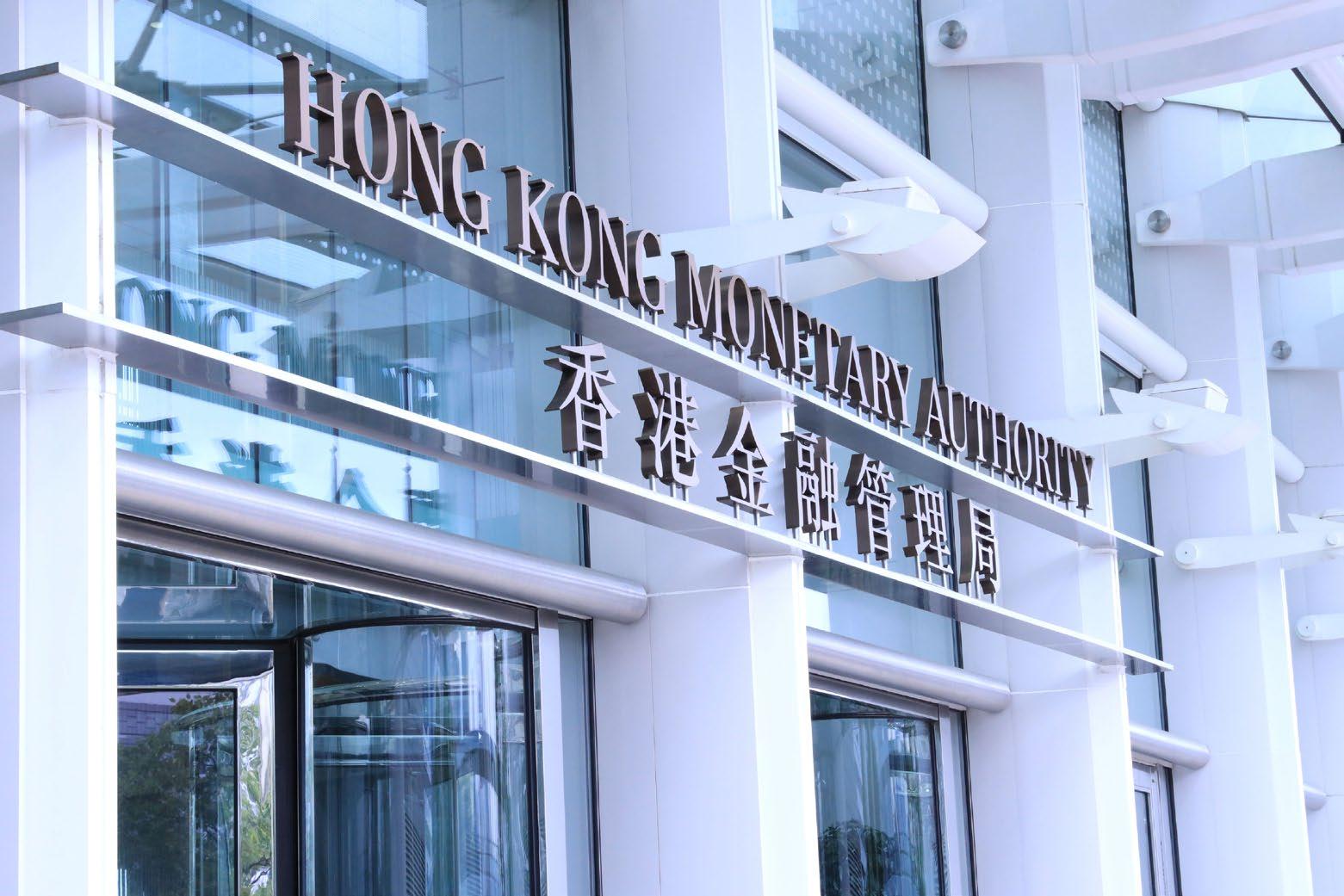
Gov't lets banks share fraud data without legal risk
Regulators hope to turn competing banks into crime-fighting partners.
FINANCIAL SERVICES
Hong Kong has amended its banking ordinance to give financial institutions stronger legal backing to share information on suspected scams, money laundering, and terrorist financing—an upgrade regulators say will improve efficiency in tackling financial crime and reduce costly system breakdowns caused by fraud.
The Banking (Amendment) Ordinance 2025 introduces a “safe harbour” that protects authorised institutions when exchanging data aimed at detecting or preventing prohibited conduct. The change is expected to encourage banks to take more action in flagging suspicious accounts and intercepting illicit funds.
“The ordinance also gives authorised institutions a measure of legal protection… whilst also imposing requirements on authorised institutions to maintain confidentiality and safeguard information,” said Raymond Chan, executive director for enforcement and anti-money laundering at the Hong Kong Monetary Authority.
He said the legal cover would let institutions share a broader range of
We want sharing to be more focused, leading to actionable intelligence in
information without fear of liability.
“I very much hope that we will see increases in suspicious accounts identified, illicit funds intercepted and, wherever possible, stolen funds returned to victims,” he said in an exclusive interview.
Stronger sharing could also help the police prosecute criminals exploiting Hong Kong’s banking system, Chan said.
Challenges
The ordinance allows data sharing when banks observe activity indicating involvement in prohibited conduct. “The thresholds are actually a bit higher than just suspicion, which is a fairly low bar,” he said. “We don’t envisage artificial intelligence (AI)-to-AI sharing without suspicion in this context.”

The change builds on the Financial Intelligence Evaluation Sharing Tool, launched in 2023 by Hong Kong’s central bank with the Hong Kong Police Force and Hong Kong Association of Banks. The platform has supported more than 1,200 reports on suspicious corporate accounts. However, Chan noted that
corporate accounts represent only part of the problem. “Around 90% of accounts used in moving and concealing proceeds of crime, so-called mule accounts, are held by individuals rather than corporations,” he said.
The tool is now being upgraded to cover individual accounts, with the rollout planned later this year.
Participation in the expanded system will remain voluntary. Chan warned that making information sharing mandatory could backfire. “It could lead to high volumes of requests and reports, many of which would be of low quality and impose a very high processing workload on the banks,” he said.
He also cited problems with suspicious transaction reports (STR). Because banks face sanctions if they fail to file, many adopt “defensive” reporting whenever there is doubt. “We want sharing to be more focused, leading to actionable intelligence in the form of higherquality STRs. Loading another obligation onto AIs does not seem to be the best way to achieve this.”
Other safeguards
The central bank is also stepping up consumer safeguards. In December 2024, it launched Money Safe, a feature similar to Singapore’s “money lock,” which lets customers ring-fence part of their deposits until banks complete anti-fraud verification.
Other measures include an in-app authentication system that defaults to bound devices instead of SMS one-time passwords; the option to deactivate higher-risk online banking functions; real-time alerts to cancel suspicious payments; and tools to detect deepfakes.
Chan said sector-wide sharing, coupled with these measures, would help banks respond faster to fraud and money laundering.
Globally, banks are also expanding their cybersecurity methods, increasing their cybersecurity spending.
The proportion appointing chief information security officers rose to over seven in 10 of banks of the 228 banks surveyed by Moody’s Ratings.
In Asia, nearly two in five or 37% of cybersecurity leaders report directly to CEOs or CFOs— a “significantly larger proportion than other regions,” according to Moody's.
The HKMA also introduced Money Safe, a feature similar to Singapore's "money lock" in December 2024
the form of higher-quality STRs Raymond Chan
INDUSTRY INSIGHT: ENERGY & OFFSHORE
HK taps mainland for waste-to-energy push
Its first incinerator is only about to be finished in 2025, after eight years.

Hong Kong should tap wasteto-energy facilities across the Greater Bay Area instead of building its own, as it tries to phase out landfills by 2035 and generate more than 900 million kilowatt-hours (kWh) of electricity, analysts said.
“In China, there are a lot of incinerators that don’t have enough waste to burn,” Lawrence Iu, executive director at public policy think tank Civic Exchange, told Hong Kong Business. “We can explore collaboration with Mainland China to utilise idle facilities in the Greater Bay Area, which can ease the pressure for Hong Kong to build new facilities.”
Generally, the global waste-toenergy market is expected to reach $740.69m (US$95.19m) by 2035, garnering a compound annual growth rate of 7.2%.
According to Market Research Future, Asia Pacific is the fastestgrowing market due to rapid urbanisation and government investment in waste management. China, Japan, and South Korea are


expanding their capacity to combat landfill shortages and air pollution.
“With rising waste volumes, evolving technologies, and strong regional policy support, waste-toenergy is set to play a pivotal role in creating a cleaner, more sustainable energy future. As advancements continue, the sector will not only help reduce environmental pressures but also contribute meaningfully to global energy security,” Market Research Future said.
Iu said incinerators in the Greater Bay Area could process all of Hong Kong’s waste, which reached 3.97 million tonnes in 2023, according to a report by the Environmental Protection Department published in October 2024.
The Zhuhai Environmental Biomass Thermal Power Project in Guangdong province, operational since November 2016, is one of the available incineration facilities. Its first and second phases can handle 3,000 tonnes of waste daily, according to SUS Environment, a
waste-to-energy service provider based in Shanghai.
Waste-to-energy facilities are key to Hong Kong's push for more sustainable waste management. It has set a zero landfill target in 10 years.
The $31.12b (US$4b) Integrated Waste Management Facilities Phase 1 (I·PARK1), the city’s first wasteto-energy incinerator built on an artificial island off Shek Kwu Chau, is about to be finished this year.
It comes eight years after its design-build-operate contract was awarded to the Keppel Seghers Hong Kong Ltd. and Zhen Hua Engineering Co. Ltd. group.
Second facility
Hong Kong plans to build the I·PARK2, its second waste-to-energy plant in the middle-ash lagoon at Tsang Tsui, Tuen Mun.
The government has invited tenders for the design, construction, and operation of I·PARK2, which isn't expected to start operating until 2030.
I·PARK1 was designed to process 3,000 tonnes of municipal solid waste per day, generating electricity from waste heat to power about 100,000 households. I·PARK2 is expected to double the capacity of I·PARK1.
Hong Kong hopes to approve the budget for the construction of its second integrated waste management facility by next year.
This was announced by Chief Executive John Lee during his 2025 Policy Address.“To expand our wasteto-energy capacity, the Government will seek funding approval from the LegCo next year for the construction of I·PARK2,” the official said.
Meanwhile, I·PARK1 will progressively begin operation by the end of this year, he said.
Shipeng Zhang, an assistant professor at The Hong Kong Polytechnic University’s Department of Civil and Environmental Engineering, said incinerators, which number about 700 in China, are key to hitting Hong Kong’s zero-waste goal.
“Until that [I·PARK1] is running, let’s utilise the full potential of municipal solid waste in Hong Kong,” he told the magazine.
The $4b I·PARK1 is Hong Kong's first waste-to-energy energy incinerator (Photo from Carbon Neutrality and Sustainable Development)
Lawrence Iu
Shipeng Zhang

FINANCIAL INSIGHT: PRIVATE EQUITY
Distressed assets lure PE back to HK
Investors eye Pan-Asian deals to minimise exposure to US trade risks.
MARKETS & INVESTING
Private equity fund managers are ramping up investment in Hong Kong, seizing opportunities in real estate and diversifying into healthcare, consumer goods, and technology, as falling valuations and an improving capital market reset the deal landscape.
“Most Hong Kong-based PE firms are eyeing real estate,” Ka-chun Wong, Hong Kong bureau chief at Mergermarket, told Hong Kong Business in an exclusive interview. A significant drop in property prices has created a good entry point for private equity.”
Prices in Hong Kong’s commercial property market have dropped steeply. Grade A office prices have fallen 51% from their peak, with some mortgagee sales slumping almost 60%, according to Thomas Chak, head of capital markets and investment services at Colliers International (Hong Kong) Ltd. Retail and industrial asset prices have fallen 39% and 32%, respectively.
The correction has left the market “very stuck,” according to Timothy Loh, managing partner at law firm Timothy Loh LLP. He added that private equity firms have stepped in as “vulture buyers,” helping distressed developers and providing capital relief for banks.
In February, Gaw Capital Partners injected $758m in equity and a $500m senior unsecured note into CSI Properties Ltd., which had been posting losses.
The Hong Kong–based real estate private equity firm is also raising a $15.6b (US$2b) fund to back private credit and equity investments in tier-1 and tier-2 cities across the Asia-Pacific region including Hong Kong, Reuters reported in May.
Thomas Crasti, M&A advisory partner at PwC Hong Kong, said other areas are drawing private equity interest,




particularly healthcare and business services. Wong noted that multinationals have been divesting parts of their consumer portfolios. Hong Kong startups in the sector are gaining traction with private investors, according to Tracxn Technologies Chairperson Neha Singh.
Technology is also rising on investor radars. Ben Jelloun, managing partner at GCCVest Partners, cited artificial intelligence (AI) and robotics as focus sectors, pointing to Chinese AI company DeepSeek as a catalyst in attracting fresh capital back to Asia.
Andrew Lam, managing director of assurance at BDO Ltd., said information technology and biotechnology in the Greater Bay Area remain especially attractive.
Crasti expects private equity firms to continue expanding beyond Greater China, pursuing Pan-Asian investments to diversify and minimise exposure to US trade risks. In January, Pacific Alliance Group acquired a majority stake in Indian pharmaceutical packaging company Pravesha Industries, illustrating this trend.
Still, some investors are keeping an eye on Chinese companies with global ambitions.
“We are continuously trying to identify leading mature companies, dominant locally but with high potential for growth globally,” Jelloun told Hong Kong Business. Singh noted that Hong Kong investors “prioritise international expansion and innovation.”
Market sentiment has improved with Hong Kong’s stronger capital markets. Lower interest rates, abundant funds, and an upbeat investor outlook are expected to support deal activity, Lam said.
Crasti told Hong Kong Business that signs of recovery in China should further lift sentiment.
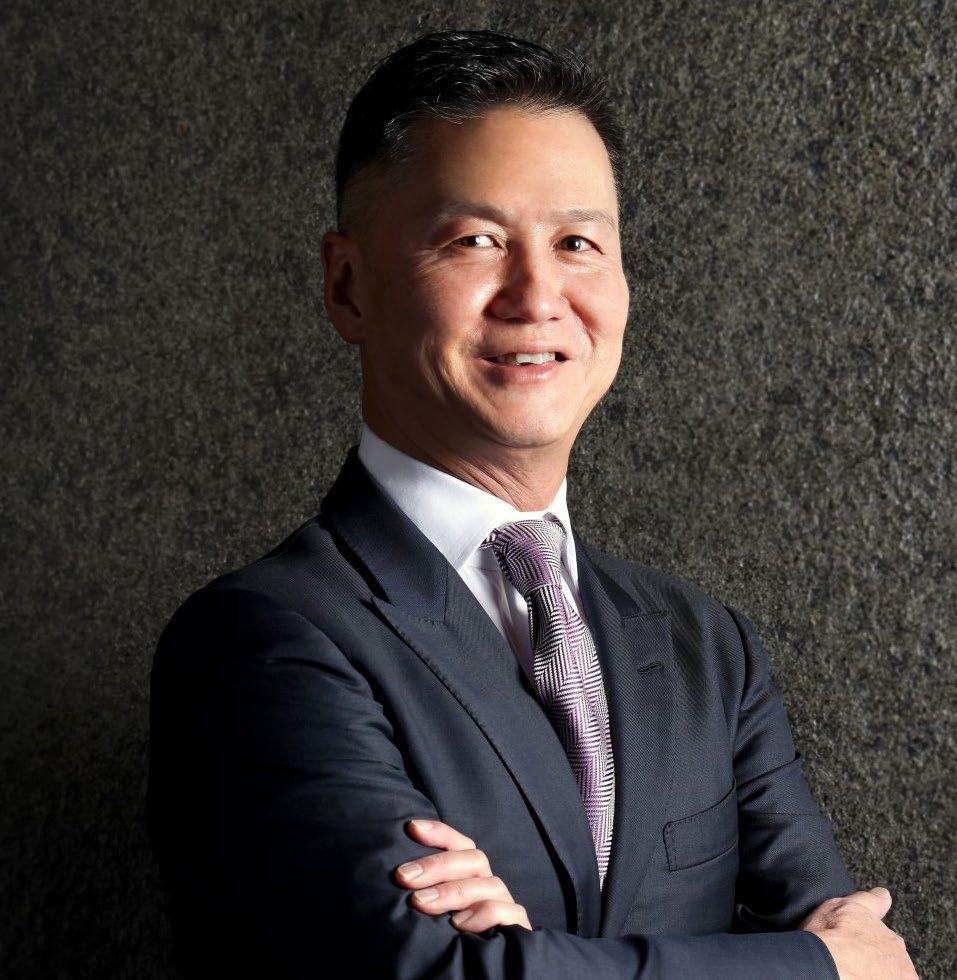
Ka-Chun Wong
Timothy Loh
Thomas Crasti

Bargain hunters revive property market
Transaction value soared 65% year on year to $9.1b in the first half.

Offices accounted for 76% of all real-estate investments in the second quarter
End-user demand is fuelling the property sector, as falling prices and fresh government measures spur activity across office, hotel, residential, and retail assets.
Investors acquiring properties for their own use—whether as offices, student housing, or luxury residences—are driving activity that analysts say will accelerate once interest rates ease.
“Commercial activity continues to be primarily driven by end-user demand, as recent price corrections have renewed interest amongst buyers seeking to secure long-term office and retail premises,” Thomas Chak, head of capital markets and investment services at Colliers Hong Kong, told Hong Kong Business.
As of 25 August, commercial realestate transaction volume had reached $27b, or about 60% of last year’s total, he said in an exclusive interview.
Grade A office prices have slumped 51% from their peak, with some mortgagee sales plunging nearly 60%. Retail and industrial prices have dropped 39% and 32%.
“Amongst these sectors, office properties have experienced the most


significant adjustment and are now trading at deep discounts,” Chak said. “Once interest rates begin to ease, leasing and investment demand are expected to improve substantially.”
The office sector has emerged as the biggest beneficiary of renewed enduser interest. Transaction value soared 65% year-on-year to $9.1b in the first half, according to Colliers.
Cushman & Wakefield, said offices accounted for 76% of all real-estate investments in the second quarter, with total investment sales climbing 92% quarter-on-quarter to $9.7b.
Driving that increase was the Hong Kong Exchanges and Clearing’s $6.3b acquisition of floors at One Exchange Square in Central for its permanent headquarters.
CBRE Group, Inc. highlighted other major transactions, including entrepreneur Mike Cai Wensheng’s $650m en bloc purchase at Park Aura and Hongxingyang Ltd.’s $230m acquisition at 9 Queen’s Road Central.
Tom Ko, executive director and head of capital markets at Cushman & Wakefield Hong Kong, said anticipated US rate cuts would unlock further office demand.
Lower US interest rates could generate demand especially amongst end-users, he added.
Beyond traditional leasing, Hong Kong’s office sector is being reshaped by the “Hostels in the City” scheme, introduced in July by the Development Bureau and Education Bureau, which allows offices to be converted into student housing.
Colliers projects demand for student beds to reach 120,000 by 2028, far outstripping the 48,000 supply, about 3,500 of which are from student hostels.
Chak said well-located Grade B offices are now priced attractively enough to yield stable returns after conversion. Ko added that Kowloon, Tsim Sha Tsui, Jordan, and Mong Kok are prime areas because they are near universities, whilst Sheung Wan could serve Hong Kong University students.
Hannah Jeong, executive director and head of valuation and advisory services for Hong Kong at CBRE, said conversion projects need not be adjacent to schools. Proximity to rail stations is sufficient since students are willing to travel “a little bit more.”
Student accommodation often generates steady rental income, usually 5% or higher compared with what the property cost to buy, said Oscar Chan, JLL Hong Kong’s head of capital markets.
Compared with offices, Jeong said converting hotels into student housing is faster and far less costly than converting office buildings.
Hotel-to-student housing conversions usually take four to six months and cost about 5% to 10% of the hotel’s original value, according to Cushman & Wakefield. Ko said hotel unit prices are down 50% to 60% from their peak.
Jeong said buyers usually target distressed hotels or those with low rents and high vacancies. Converting such properties could generate rental yields of 4% to 6%. Buyers are often universities or other education institutions, she added, noting that they account for a significant share of end-user demand in Hong Kong.
Chak said the education sector accounted for 10% of property deals in the first half. Government-related
Tom Ko
Thomas Chak
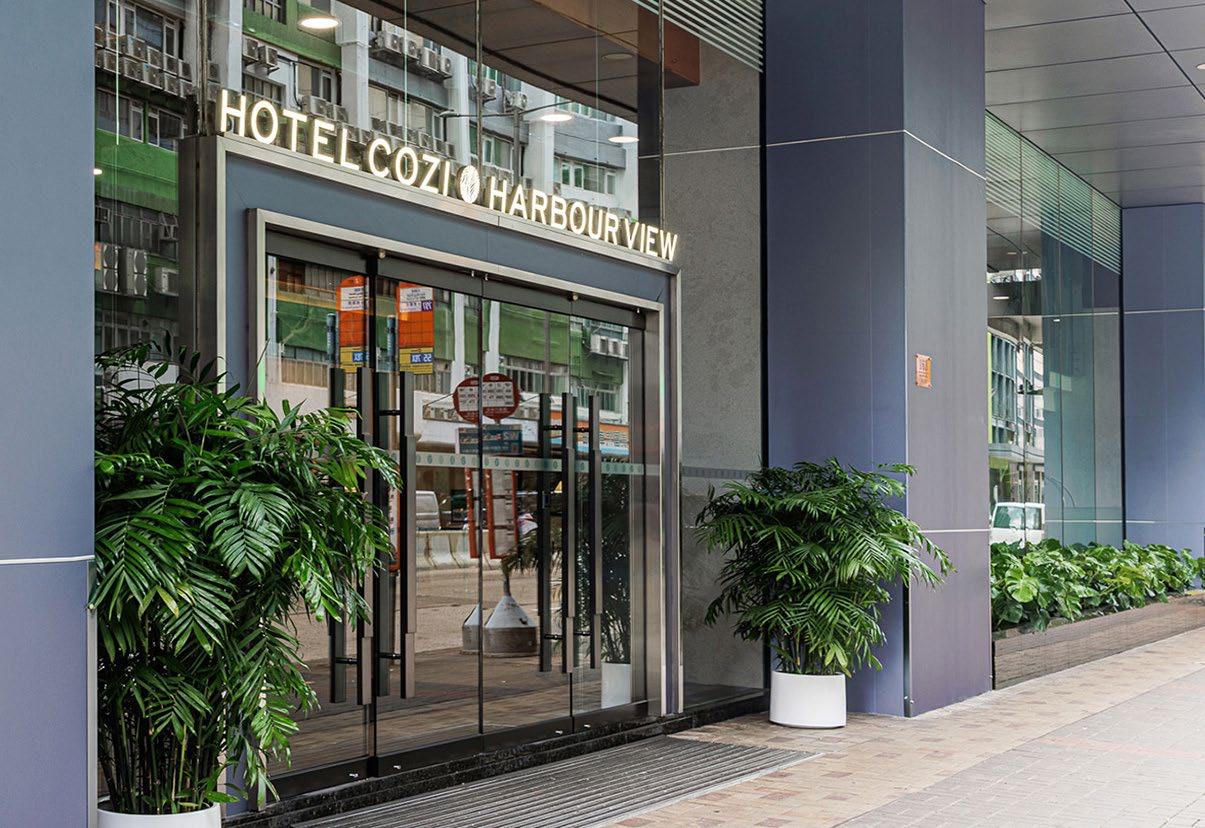
sectors, which include bodies such as the stock exchange, airport authority, and several educational institutions, accounted for 42%.
He said the growing demand for student accommodation is driven by Hong Kong’s rising appeal to mainland Chinese and international students.
Chak noted that the government recently raised the nonlocal student quota to 40% from 20%, a move that is intensifying housing needs.
Hotel transaction values advanced 83% year-on-year to $2.8b in the first half, he added.
Cushman & Wakefield reported two big hotel deals during the period. HKIA Accommodation Ltd. snapped up the Winland 800 Hotel in Tsing Yi for $765m, whilst Nanyang Commercial Bank acquired Hotel COZi Harbour View in Kwun Tong for $1.87b.
Key drivers of demand
Mainland Chinese investors are emerging as key drivers of demand in Hong Kong, not only for student accommodation but also for luxury homes, Chan said. “We saw strong demand from mainland Chinese buyers, driven by Hong Kong’s stable market and high-end lifestyle appeal,” he said in a separate interview. He added that cheaper financing since April and the Federal Reserve’s likely September rate cut could further lift sentiment in the luxury residential market.
Mortgage interest rates are holding at 2.5% to 2.7%, a range Jeong described as a healthy buffer, particularly as residential property is considered a less risky asset type.
Jeong said mainland buyers favour Hong Kong luxury homes since low developer risk guarantees reliable delivery of purchased units.
“In Mainland China, during the residential market crunch, a number of developers either defaulted or were unable to deliver their projects during the construction period,” she told Hong Kong Business
“From the perspective of mainland investor-buyers, Hong Kong developers are very prudent and committed to delivering what they promise,” she continued.
Jeong added that since the Hong Kong dollar is pegged to the US dollar, buying property in Hong Kong is, in effect, like investing in US dollars rather than in renminbi. If prices climb and the US dollar strengthens, buyers gain twice, making Hong Kong apartments especially attractive to


Chinese investors, she said.
About 50% of luxury residential buyers in Hong Kong are mainland Chinese, Jeong said. Location-wise, Kai Tak and Wong Chuk Hang are emerging as the preferred districts for luxury residential developments.
She added that buyers prefer apartments over houses because these are typically overseen by experienced property operators.
As a result, even units exceeding $100m have attracted strong interest from mainland buyers, boosting apartment sales, Jeong said. Their preference for new units has translated into higher first-hand sales across the residential market, now representing roughly a third of transactions.
Retail revival
In the commercial space, hotels and retail assets continue to drive transaction volumes. The retail vacancy rate fell to 7.1% in the first half, pushing rents up 0.9% quarteron-quarter, according to CBRE data. Food and beverage groups leased 134,000 square feet, their strongest take-up since 2009.
From the perspective of mainland investor-buyers, Hong Kong developers are very prudent and committed to delivering what they promise
In the second half, three retail deals took place—one was Perfect Smart Ltd.’s $119m acquisition of Unit C1 at King Fai Building, whilst the other two were purchases made by churches.
Retail remains undervalued, Chan said, citing prime-location shops with fixed leases of as long as 10 years that can provide yields above 5%.
“Prime retail with stable tenancies can offer a good return.” Jeong noted that retail yields typically range from

Oscar Chan
Hannah Jeong
Nanyang Commercial Bank acquired Hotel COZi Harbour View in Kwun Tong for $1.87b
Retail vacancy rate fell to 7.1% in the first half, pushing rents up 0.9% quarter-on-quarter

5% to 7%, depending on tenant quality and stability.
Street shops are particularly attractive, offering good rent and the potential for high yields. “Investors were keen to look at these because they were amongst the most heavily adjusted asset types in 2024,” she added.
She expects stronger transaction volumes in the second half, supported by an improving stock market.
“The IPO market has been very active, thanks to government support. And normally, when the stock market recovers, the property market follows a similar pattern,” she told the magazine.
Chak said stronger IPO and fundraising activities in Hong Kong would create a “wealth effect” that is likely to drive robust investment in the property market. He added that a government programme to let applicants invest a portion of their funds in property would also support the market.
The head of capital markets and investment services said 911 applicants had been approved under the scheme as of April, translating into estimated inflows of more than $37b.
Jeong said Hong Kong’s revised re-domiciliation rules, which allow overseas companies to shift their legal base to the city, are expected to boost business activity and investor confidence in the property sector.
She added that the Northern Metropolis project is likely to create more opportunities in residential real estate, especially with strong government backing. The large-scale development along Hong Kong’s border with Shenzhen aims to deliver about 350,000 new housing units.

Hong Kong’s hostel conversion scheme seen reviving office sector

ANormally, when the stock market recovers, the property market follows a similar pattern
government scheme allowing commercial buildings to be converted into student hostels is expected to breathe new life into Hong Kong’s struggling office market, where prices and rents have been falling since last year.
“Owners of existing underperforming Grade B or C office buildings will see an opportunity to give those buildings a new lease on life,” Shaman Chellaram, senior director at property consultancy Colliers, told Hong Kong Business in an exclusive interview.
“No additional procedures will be required for converting existing commercial properties. This could save them about six to nine months,” the senior director continued.
In the last quarter of 2024, prices of Grade B and C offices fell 20%, whilst rents dropped more than 5%, according to data from the Rating and Valuation Department.
Rents and capital values continued to decline across almost all commercial property segments in the first quarter this year, according to Jones Lang LaSalle, Inc.
The office sector’s vacancy rate had risen to 13.7% by the end of March, with rents slipping 1.3% quarter-on-quarter.
Launched on 21 July by the Development Bureau and Education Bureau, the Hostels in the City Scheme allows buildings on land zoned as commercial to be converted into student hostels. Industrial buildings are excluded.
The programme classifies student hostels as nondomestic buildings, letting them have more floor space than standard residential projects.
“We can now preserve those spaces such as parking lots or other commercial zones and convert them into game zone, activity room and study room,” said Gary Chan, assistant marketing manager at Y.X., one of Hong Kong’s biggest student accommodation providers.
Y.X. bought a 25-storey office tower in Hung Hom together with its fund partner AEW for $1.65b in 2022 and converted it into a 600-bed student hostel.
Chellaram noted that third-party investors have been increasingly drawn to the student accommodation sector. “It not only gives them land appreciation but also provides a de-risked cashflow as students would pay rents in advance,” he told the magazine.
The number of University Grants Committee-funded students surpassed 100,000 in the 2024-2025 academic year, up 8.1% from 2020 to 2021. As of 2024, Hong Kong’s higher education institutions had enrolled over 333,600 students across various programmes.
Prices of Grade B and C offices fell 20% in end-2024
HOTELS & TOURISM
The Northern Metropolis project is likely to create more residential real estate opportunities
Street shops offer good rent and the potential for high yields

REAL ESTATE LUMINARIES
Most notable real estate agents under 40
In search of the most notable real estate agents under 40, Hong Kong Business reached out to more than 35 property firms. After rigorously reviewing submissions from the firms, five women and 15 men have made it to the final cut.
Agents on this year’s list come from CBRE, Colliers, Cushman & Wakefield, Knight Frank, JLL, OKAY.com, and Savills. Leading the pack are Colliers and CBRE, with five representatives each. The youngest on the list is from Savills.
Realtors in the office market took the lead, taking seven spots in the list.
This year’s honourees are million and billion sellers and have handled big clients such as Hong Kong Exchanges and Clearing Limited (HKEX), ANZ Bank, Prudential, Y36, Mazars, Oriental Watch, Cinda International Holdings Ltd.,Vizz Digital Group, Chiaphua Industries Ltd, and FTI Consulting.
Notable deals completed by this year’s honourees feature the sale of Goldin Financial Global Centre and Cheung Kei Center, with the latter fetching $2.65b from Hong Kong Metropolitan University—the biggest commercial property deal of 2024.
Here are this year’s honourees, arranged from youngest to oldest.

Thomas is a real estate professional who has played a significant role in deals exceeding $2.5b over the past two years. His expertise lies in the acquisition and disposal of high-value investment properties, including retail, hotels, en-bloc composites, car parks, residential properties, and school premises. His notable transactions include the Urbanwood Hung Hom Hotel, the Commercial Accommodation and Public Vehicle Park at Alto Residences, and a house lot at 19 Kent Road. Beyond transacting deals, he mentors future surveyors through active participation in the Committee of the HKIS Young Surveyors Group.

Harry advises clients in financial services, asset management, consumer and pharmaceutical goods, and public relations, with mandates from Mainland China, wider Asia, and Europe. Last year, he successfully negotiated leases for Oriental Watch for a combined 20,000 sq. ft. and orchestrated a comprehensive lease extension for Mazars’ 20,000 sq. ft. in Wan Chai. His portfolio includes transactions for lease renewals, relocations, and expansions, including the relocation of a mainland enterprise to K11 Victoria Dockside in Tsim Sha Tsui. In 2024, Harry generated $4.5m revenue across 20 transactions.

Michael provides strategic advice on acquisitions, disposals, and pricing, with a focus on navigating investment opportunities for investors and high-net-worth individuals. Michael has been involved in multiple high-ticket transactions totalling over $2.5b. Amongst them is the SL Ginza (formerly Golden Wheel Plaza) commercial building in Tin Hau. He also worked on the pioneering Y36 receivership sale of an en-bloc multi-unit residential building in Hung Hom, which was acquired by a student accommodation operator. This year, he was involved in the Queen's Road Centre transaction.

Nino specialises in cross-border real estate strategy for enterprises from Mainland China. He provides services including land acquisition, development feasibility, investment optimisation, and commercial leasing and purchasing. Nino works with mainland government bodies, central state-owned enterprises, and state-owned enterprises to help them expand in Hong Kong. In 2025, he led the relocation of Cinda International's headquarters from Cosco Tower to Central Plaza and helped the Jiangsu Provincial Government establish its Innovation and Technology Centre at Cyberport.

Wilson is an experienced real estate professional focused on the acquisition and disposal of investment properties. As an associate director, he has demonstrated resilience and strategic acumen. In 2025, he successfully brokered a commercial portfolio on Hong Kong Island and a basket of residential units and parking spaces on Robinson Road, Mid-Levels. Before his capital markets career, Wilson helped launch a 1-million sq ft retail complex in Guangzhou and built a strong track record in international property brokerage. His diverse background provides a holistic market perspective and a high-value client base.
1 Thomas Ng 24, Savills
2 Harry Wong 25, Colliers
3 Michael Ip 27, Colliers
4 Nino Huang 29, Colliers
5 Wilson Cheung 29, Knight Frank
REAL ESTATE LUMINARIES

Dave is a dedicated real estate professional at Savills Hong Kong, specialising in agricultural and brownfield land transactions. In the last three years, he has successfully brokered over 200,000 sq.ft. of agricultural lands. His notable transactions include 37 Cumberland Road and DD85 Lot 612 S.G. He has also concluded a diverse range of deals, including residential development land, retail malls, and industrial properties. Dave excels at identifying market trends, using data-driven insights and innovative strategies to provide tailored solutions. His expertise in complex deals makes him a trusted specialist in the challenging real estate sector.
9

Flora has been a specialist in large-cap investment transactions at Savills Investment CEO Office since 2018, playing a pivotal role in deals totalling nearly $8.5b. She has expertise in managing receivership asset sales, including a portfolio of elderly care centres under receivership. Amongst her notable achievements are her contributions to the Goldin Financial Global Centre and the Cheung Kei Center, two of Savills Hong Kong’s largest office projects in recent years. She also managed the sale and acquisition of elderly care centres under receivership. Her analytical mindset allows her to provide insights into market trends and investment opportunities.
7

Jarrod is an innovative leader in the Tenant Advisory Group at Cushman & Wakefield. He transacts over 25 assignments annually for local and multinational occupiers, including strategic renewals, lease restructures, and relocation projects. He also leads the Alternative Investment Services platform, offering insight for occupiers in the sector and the Greater Central submarket. In 2025, his notable assignments included representing a North American insurance firm with 310,000 sq ft of lease negotiations and an international bank occupying 50,000 sq ft. He is passionate about delivering tailored solutions that align with each client’s long-term goals.
10

Tony is an Associate Director on the Industrial & Logistics Leasing team. Specialising in tenant representation, he's known for his market knowledge and strategic thinking, delivering end-to-end real estate solutions to help clients streamline operations and achieve long-term savings. He successfully closed seven deals with Cainiao Supply Chain, totalling over 250,000 sq ft. Another standout transaction involved advising a client on leasing two floors of China Resources Sha Tin Warehouse in Fo Tan, totalling 67,396 sq ft. His portfolio includes transactions with third-party logistics firms, high-tech electronics manufacturers, self-storage operators, and G/F warehouses.
8

Honlia is a dedicated professional in JLL's Office Leasing Advisory team. With a decade at JLL, she has advised on over 250 deals, including new lettings, renewals, lease restructures, and rent reviews. Notable achievements include securing two office floors for the English School Foundation, advising a major French bank in its long-term leasing strategy, and assisting an insurance client with lease restructures. She has also negotiated signage agreements in Great Eagle Centre and shaped leasing strategies for The Hong Kong Club Building and Infinitus Plaza. Honlia is committed to delivering thoughtful solutions for Hong Kong's evolving office market.
11

Evan is an Associate Director in CBRE's Industrial & Logistics team. He has eight years of experience in the industrial and warehouse market, providing strategic market planning and consultancy services to both local and multinational corporations. Evan's expertise covers leasing, renewals, and strata-title sales. He has handled leasing transactions for various government departments, totalling over 270,000 sq ft. Notable achievements include leasing 113,362 sq ft of warehouse space for Chaiphua, and, as landlord representative, securing tenants from the logistics, aviation, and pharmaceutical sectors totalling 103,194 sq ft in just eight months.
6 Dave Yeung 29, Savills
Jarrod Mongston 33, Cushman & Wakefield
Honlia Mok 33, JLL
Flora Mak 33, Savills
Tony Leung 33, CBRE
Evan Chau 35, CBRE
REAL ESTATE LUMINARIES

Kelvin specialises in tenant representation across various asset types, including office, retail, industrial, residential, and hospitality properties. With nearly a decade of experience, he is a trusted adviser to tenants in Hong Kong's commercial property sector. He focuses on guiding clients from emerging sectors like technology, co-living, and digital marketing. His notable achievements include the en bloc lease of 129 Temple Street to Linko Concept, an 8,966 sq. ft. transaction in the co-living sector for student accommodation. He also successfully relocated Vizz Group from an industrial building to a full-floor tenancy at KOHO in Kwun Tong, a 16,151 sq. ft. space.

Laura specialises in property valuation and focuses on urban renewal and strategic land use. She has worked on several Urban Redevelopment Authority (URA) projects, including C&W006, KC009, KC016, and KC010–012, where she assessed compensation for minority owners. At Savills, Laura has led over 10 valuation services under the Land (Compulsory Sale for Redevelopment) Ordinance, with a total existing use value exceeding $8b and a potential Gross Floor Area (GFA) uplift of more than 300,000 square feet. Her team also manages annual valuation services for a diverse range of clients, with portfolios exceeding $100b in value.

Richard specialises in leasing strategies for clients in the banking and financial services sector. With over a decade of experience, he is a trusted adviser to corporate tenants. His expertise includes financial modeling and cash flow forecasting, which he uses to optimise office footprints for firms. He’s guided significant relocations and consolidations for institutions like HKEX and FTI Consulting. In 2024, he spearheaded the consolidation of Marex’s four offices into a singular 10,000-square-foot headquarters at Three Garden Road – ICBC Tower. He is also currently representing over 20,000 sq ft for a consulate general in a prime Grade A building.

Seb is a real estate professional at CBRE, specialising in tenant representation and strategic advisory services. With over a decade of experience in Hong Kong, he has overseen more than 1 million sq ft of transactions for both global corporations and local businesses. Seb manages approximately 20 transactions annually. Notable deals including a 35,000 sq ft rent review for ANZ Bank, a 10,000 sq ft new letting for investment firm CIGP, and a lease restructure for a prominent airline. He also collaborates with CBRE Asia Pacific to provide regional advisory services to his clients, ensuring consistent, high-quality support across markets.

Murphy is an Associate Director in the Capital Markets team. He spent three years in valuation at JLL, where he assessed overseas assets in locations like Paris, Australia, and Belgium. In CBRE, he’s brokered over $3b in transactions. His work includes the acquisition of a major portion of Shatin Industrial Building, the en bloc sale of Hale Weal Industrial Building, and the sale of the 17th floor of Hong Kong Industrial Building. In 2024, he also facilitated the acquisition of public car park spaces and a 15,000 sq. ft. retail podium at The Campton development in Sham Shui Po. His expertise guides complex deals, delivering value across asset classes.

Mac specialises in office advisory and transaction services. He began his career representing landlords in Brisbane in 2010 before moving to Hong Kong in 2013 to focus on tenant representation. His expertise lies in advising financial institutions and investment funds. His expertise enabled successful execution of several high-profile transactions including 11,000 sq ft relocation for Northern Trust at Three Pacific Place, a 21,000 sq ft renewal for Balyasny Asset Management at Two Exchange Square, a 15,000 sq ft expansion for LMR Partners at LHT Tower, and a 9,000 square feet new letting for a confidential fund at Cheung Kong Center II. 12 Kelvin Wong
REAL ESTATE LUMINARIES
18 David Wong 38, JLL

David is an Associate Director in JLL’s Kowloon office leasing advisory team, specialising in servicing premier occupiers. He has completed over 210 transactions, totalling 3.2 million sq. ft. in the last five years. He has worked with a diverse range of clients, including Prudential, whom he has provided strategic counsel for their portfolio exceeding 540,000 sq. ft. Recent notable transactions include securing a 32,000 sq. ft. letting at ICC and facilitating a strategic relocation for a tenant upgrading from Kowloon to Taikoo Place. He also collaborated with multiple landlords on pre-completion marketing initiatives and achieved exceptional results.
19
Sonam Thadani 38, OKAY.com屋企 (OKAY Property Agency Limited)

Sonam has over five years of experience in Hong Kong's real estate market, with a focus on pairing people with homes. She’s transacted over $120m in property value across rentals and sales,including notable sales such as $45m at Silvercrest and $16.5m at Soho 38. Known for her resourcefulness and location-agnostic approach, she’s comfortable navigating high-rises and hidden neighbourhood gems. She focuses on after-market satisfaction, connecting clients with handymen, logistics providers, and interior designers. She prioritises her clients' comfort and satisfaction, helping them find homes where they can thrive and create lasting memories.
20
May Ng 38, JLL

May is an Associate Director in JLL’s Office Leasing Advisory Team with over 11 years of experience in Kowloon markets. She specialises in project leasing, tenant representation, and advisory services. Since joining JLL, she has advised on over 2 million sq. ft. of leasing transactions, generating in excess of $20m in revenue since 2020. This year alone, she concluded over 120,000 sq. ft. of new lettings for clients across industries such as insurance, logistics, and sourcing. Her commitment to excellence and client-focused approach has established her as a highly regarded adviser in Hong Kong’s competitive commercial real estate market.

REAL ESTATE OUTLOOK

Tokenisation, tech pushed to revive property market
It could cut transaction costs by as much as 30%.
Hong Kong should explore tokenisation of properties to spark activity in its struggling commercial property market, an industry analyst said.
“Property illiquidity hinders deals,” Kwan Chit Chiu, senior manager at Savills (Hong Kong) Ltd., told Hong Kong Business. “Blockchain and real-world asset tokenisation can raise capital via fractional ownership.”
He added that tokenisation could cut transaction costs by as much as 30%. Commercial property investment reached $14.7b in the first half—a third of 2024’s full-year total— underscoring the market slowdown, according to data from CBRE.
Kwan cited Shanghai-based Seazen Group Ltd., which issued nonfungible tokens (NFT) tied to its Wuyue Plaza shopping mall, raising $10b to $20b in funding. He also cited Project Victoria in Hong Kong, which tokenised property-related claims such as liens. Ripple Labs, Inc. and Fubon Bank (Hong Kong) Ltd. carried out the pilot under the Hong Kong Monetary

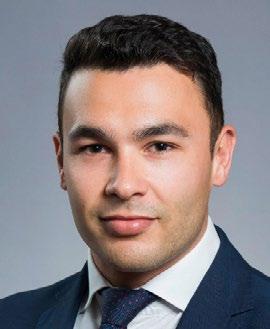

Authority’s e-HKD initiative, using tokenised liens as collateral for home equity loans with disbursements in trial digital Hong Kong dollars.
“This minimum viable product demonstrated efficient equity release, combining tokenised assets with lending protocols to unlock liquidity for owners and streamline bank operations, reducing cycles from weeks to days whilst ensuring atomic settlements and compliance,” Kwan said in an exclusive interview.
Tokenisation of real-world assets is expanding globally, with the AsiaPacific region expected to account for $65b in tokenised assets this year.
Still, Hong Kong faces regulatory headwinds after the China Securities Regulatory Commission advised against real-world asset tokenisation in September, citing “policy alignment needs.”
Despite this, Kwan argued that tokenisation could fast-track deal closings, cut errors, promote transparency via traceable histories, mitigate risks through smart contracts,
and provide global liquidity access.
Kwan told the magazine that Hong Kong could harness data analytics and artificial intelligence (AI) to better predict buyer demand and price properties more accurately.
Closing valuation gaps
Persistent valuation gaps between buyers and sellers remain a major barrier to transactions.
“These can be addressed through transparent communication and leveraging technology for updated market data,” Oscar Chan, head of capital markets at Jones Lang LaSalle, Inc. (JLL Hong Kong), said in a separate interview.
Chan also cited the need for “proactive market education” to align expectations on both sides of a deal.
Jarrod Mongston, associate director for office services at Cushman & Wakefield (HK) Ltd., said there can be challenges with managing client expectations as occupiers often rely on incomplete or misleading market signals.
"For example, the Grade-A rental market may have dropped considerably from the recent peak, but Prime grade buildings are still in high demand, often with competition to lease the space,"said Mongston, who is part of the 2025 edition of Hong Kong Business' Real Estate Agents Under 40. “Accurate and relevant market data is key to managing expectations.”
He said greater transparency would support smoother transactions. Some landlords, he added, conceal lease terms through “side letters” and nondisclosure agreements, which undermines transparency and weakens tenants’ negotiating position.
That is where a trusted and qualified tenant representative adviser comes into their own, helping occupiers navigate such practices, he added.
For investors, measurable returns remain a top concern.
CBRE Hong Kong Executive Director and Head of Capital Markets Reeves Yan said agents must build solid improvement plans to demonstrate value-add potential.
“A common challenge is justifying rental growth in the near future,” he said in a separate interview.
He noted that several sectors, including offices, are under pressure from supply-demand imbalances.
Seazen Group issued NFTs tied to its Wuyue Plaza shopping mall, raising $10b to $20b in funding (Photo from Chapman Taylor)
Reeves Yan
Jarrod Mongston
Kwan Chit Chiu

INDUSTRY INSIGHT: INSURANCE
Insurers brace for higher cyber costs
New Critical Infrastructures Ordinance rules push insurers to mandate security audits and response tests.
Cyber insurance rates in Asia fell 7% in the second quarter

Tighter cybersecurity law is expected to prompt insurers to reassess coverage, tighten underwriting, and push up premiums, according to analysts.
Jonathan Crompton, a partner at law firm Reynolds Porter Chamberlain LLP in Hong Kong, said the changes would likely not immediately overhaul cyber policy wording but will drive gradual structural shifts in how insurers evaluate risk and engage with clients.
“If the market remains soft and more insurers enter into the cyber market, then we may see more requests from insureds and brokers to cover certain costs specific to the new law,” he told Hong Kong Business.
“This could potentially extend to certain proactive measures that are necessary under the Critical Infrastructures Ordinance (Cap. 653)," he said in an exclusive interview.
The ordinance mandates that critical infrastructure operators strengthen cyber defences and remain responsible for cybersecurity even when third-party vendors are involved. Whilst most policies already respond to breaches caused by service providers, Crompton told the magazine that underwriting will become more probing.


“We’ve seen incidents where the insured has confirmed in the underwriting questionnaire that it has multi-factor authentication, and then the forensic investigators found out that they did not,” he said.
Insurers are likely to tighten questionnaires, verify security measures, and refuse coverage if misrepresentations are found, he added.
Simon McConnell, a partner at law firm Clyde & Co. LLP, said premiums are expected to rise, particularly for high-risk sectors, reflecting increased compliance costs and regulatory exposure.
“Insurers are reviewing and adjusting existing policy terms to assist clients in managing risks and mitigating losses from cybersecurity incidents or non-compliance with Cap. 653,” he said.
This includes broadening coverage for regulatory investigations, legal fees, public relations management, customer notification, cybersecurity experts, and forensic costs.
McConnell added that insurers may also introduce more rigorous reporting requirements under the new regime, including proof of compliance with the ordinance, timely notification of incidents, and evidence of ongoing cyber resilience exercises.
“CIOs and those operating in high-risk sectors will likely face greater underwriting scrutiny and may be required to participate in regular security drills or annual risk assessments before renewal,” he said. Such measures are designed to ensure that insured organisations are keeping pace with new statutory duties and best practices.
Cyber insurance rates in Asia fell 7% in the second quarter, driven by demand from first-time buyers, according to New York-based insurance broker Marsh.
Hong Kong rates declined 8%, slightly softer than previous quarters. Third-party cyber risk remains a key focus for underwriters as companies assess digital supply chains, it said.
Wider services adoption
Analysts said the new law would encourage insurers to play a more active role in clients’ pre-breach cybersecurity strategies.
Crompton and McConnell expect wider adoption of services such as security posture reviews, staff training, and simulated breach exercises.
McConnell noted that insurers may even require annual risk assessments or cybersecurity audits before renewal, as part of more stringent compliance monitoring.
He added that insurers could establish dedicated cybersecurity advisory units, offering policyholders pre-breach assessment services and access to incident response platforms to contain threats quickly.
Crompton said UK insurers now offer brief consultations and trafficlight reviews of data governance and breach policies, whilst McConnell predicted that Hong Kong will follow a similar trajectory as the market matures. Such services cut claim frequency and help clients meet legal obligations by promoting proactive risk management.
Over the next three to five years, the ordinance is expected to strengthen market maturity. McConnell foresees broader coverage and incident response services evolving alongside regulatory and threat developments.
Simon McConnell
Jonathan Crompton

We help make financial protection accessible to all
At RGA, we live on the boundary of what’s possible. We’ve broken ground as the only reinsurance company to focus on life- and health-related services, ensuring that financial protection is accessible to those who need it most.
K-pop, Mandopop tourists spend more, stay longer
Live events likely drew 840,000 visitors and spurred $3.3b in first-half spending.
Rising concert and sports tourism spurred by the show-stopping performances of artists like Coldplay and K-pop star Taeyeon is driving longer stays and bigger spending in Hong Kong, pushing the industry to rethink strategies around major live events.
The shift was evident in the first quarter, when a surge of more than 90 major events, including the Hong Kong Sevens rugby tournament, contributed to a 9% year-on-year increase in foreign visitors to 12.2 million, according to travel service provider Collinson International Ltd.
“These events are forecast to attract approximately 840,000 visitors [in Hong Kong] and generate $3.3b in spending [in the first half],” Ian Lee, managing director for North Asia at Collinson, told Hong Kong Business.
According to Grand View Research, the music tourism market in Asia Pacific is projected to expand at a compound annual growth rate of 19.5% from 2025 to 2030, underscoring how live entertainment is shaping regional travel.
Lee said the surge reflects a

wider demand for experiential travel, particularly among younger audiences. Roughly two-thirds of concert package inquiries came from travellers aged 24 to 35, many of whom prefer smaller group trips.
According to Collinson, these trends are creating spillover benefits for local businesses as well as neighbouring destinations, as fans extend trips or plan return visits around regional tour stops.
Experiential travel is generating substantial economic benefits for local businesses and increasing interest in less-visited destinations, Lee said.
Globally, Collinson projects music tourism to hit $17.7b by 2032.
Travelling patterns
Seven of 10 music fans in Asia have travelled by plane to attend an event in the past three years or plan to do so in the next 12 months, Collinson, which operates the world’s biggest independent airport lounge network, said in a report in April. Moreover, 91% of the participants have travelled to a new city or country for a music or sports event, and of

those, 31% were repeat visitors.
“Amongst those who fly for events, 56% travel more than once a year and 21% attend three or more events annually,” Lee said in an exclusive interview.
He added that 85% of music fans in Asia arrive one to three days before an event, whilst 84% stay the same number of days after. Thirty-one percent travel with a partner, whilst 47% travel with friends.
Collinson said there was a 13% yearon-year increase in airport lounge visits in Hong Kong by travellers from the Asia-Pacific region.
More than half of fans in Asia have used airport amenities whilst attending events. The most popular services include airport lounges, gaming lounges, sleep pods, and spas.
“Notably, during the Coldplay concert period (8 to 12 April 2025), we saw a 24% increase in visits from global travellers to Hong Kong airport lounges and travel experiences compared with the same period last year,” according to Lee.
The managing director said they are optimistic that music tourism would become a major engine in Hong Kong's tourism recovery.
“The city is actively planning and hosting numerous mega-music events in 2025 and 2026 that are expected to draw substantial international and regional attendance.”
Upcoming events
Hong Kong will host more concerts for the rest of the year, such as the final stop of G-DRAGON's Übermensch World Tour in Asia, the last leg of BLACKPINK's Deadline World Tour, and King of Mandopop Jay Chou's Carnival World Tour.
Upcoming mega events also include the Mnet Asian Music Awards (MAMA) and Hong Kong’s own Clockenflap Art & Music Festival.
“These efforts, combined with Hong Kong’s continued investment in tourism infrastructure, such as the Kai Tak Stadium and airport expansion, will further solidify the city’s reputation as a premier destination for unique, world-class entertainment experiences,” Lee said.
“As this sector grows, brands have exciting new opportunities to engage with high-value travellers through tailored experiences at every stage of the journey,” he added.
LEISURE & ENTERTAINMENT
Ian Lee
More concerts in Hong Kong for 2025 include King of Mandopop Jay Chou's Carnival World Tour


We support your business growth
Allianz Trade in Hong Kong has supported businesses with:
✓ Over €457 million in insured trade
✓ Credit risk consultations for over €1 billion in trade business
We can help you today



ZA Bank sharpens focus on wealth, digital assets
The digital lender plans to launch Hong Kong stock trading later this year.
ZA Bank Ltd. will intensify its focus on wealth management as it seeks to capture opportunities in one of Hong Kong’s fastest-growing financial sectors, newly appointed CEO Calvin Ng said.
“I would say our focus now is more on wealth management because we have the base,” he told Hong Kong Business. “We have accumulated trust with the users. We have more products around it.”
“We still have more asset classes to introduce. Once the basic suite is assembled, that will become our digital wealth management focus moving forward,” he added.
The digital bank already offers crypto trading, US stock trading, and access to more than 170 funds and unit trusts. Ng said Hong Kong stock trading is also on the way, with launch expected later this year.
Strengthening its wealth proposition, however, is just one part of Ng’s broader strategy as CEO. He said ZA Bank will deepen its product stack, enhance risk management, and accelerate automation across core banking operations.
The lender is also investing in artificial intelligence to sharpen efficiency and deliver more personalised customer experiences. Predictive analytics and data-driven insights, Ng said, are now central to product design and engagement.
“AI allows us to better understand customer behaviour and deliver smarter, faster services without adding operational overhead,” he said.
Ng added that the bank is expanding its in-house expertise in technology and compliance to support new ventures in digital assets, stablecoins, and Web3.
“Our long-term vision is to merge traditional finance with digital innovation under a single, trusted platform,” he said. “That convergence will define the next phase of banking in Hong Kong.”
'Next generation's first choice'
Hong Kong’s total assets under management rose 13% year on year to $35t in 2024, according to the Hong Kong Monetary Authority and the Securities and Futures Commission. ZA Bank sees this expansion as fertile ground for digital players.
“The opportunity for us is how to make wealth management work under the digital wealth era,” Ng said. “Consumer behaviour has changed, with more options available globally and with users now empowered to make their own informed decisions. That shift will open new opportunities for us as a bank to keep up with the trend and ride along the wave," he continued.
The CEO said the goal is to position ZA Bank as the next generation’s first choice for digital wealth. In the first half of 2025, the digital bank reached one million users.
“We aim to build a seamless, diversified, all-in-one wealth

platform that helps customers grow their assets through hyper-personalised experiences and frictionless access to global markets,” he told Hong Kong Business.
“Wealth is not just a feature; it’s our profit engine. And we’re scaling it with purpose," he continued.
'One-size-fits-you'
Beyond wealth products, Ng said the bank would double down on digital assets and Web3 services.
“Web3 is here, but it needs trusted bridges,” he said.
ZA Bank wants to bring bank-level compliance to digital asset transactions whilst letting customers trade crypto instantly through their savings accounts. In 2024, ZA Bank became the first bank in Asia to offer retail crypto trading. The bank was also the first digital bank in Hong Kong to provide reserve banking services for stablecoin users.
With Hong Kong’s stablecoin law taking effect in August, requiring issuers of fiat-pegged tokens to secure licences, ZA Bank aims to become a reserve partner for licensed issuers.
Wealth is not just a feature; it's our profit engine. And we're scaling it with purpose
“The law provides clarity and opens new opportunities,” Ng said. Technology and efficiency also rank high on Ng’s agenda. The bank is using artificial intelligence to identify risk signals, streamline back-end processes, and deliver smarter customer service via chatbots and automation.
“Consumers today expect Netflix-style banking—fast, relevant, and tailored to them,” Ng said. “The future isn’t onesize-fits-all; it’s one-size-fits-you.”
Calvin Ng, CEO at ZA Bank









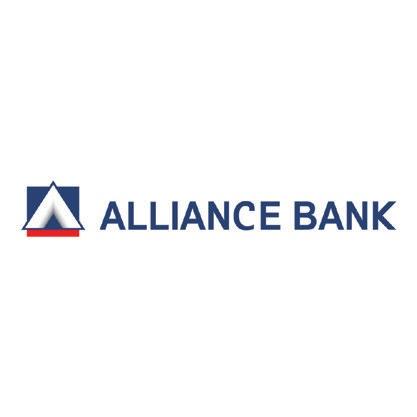

Yum China trains staff with in-house AI tools
Its SuperBrain helps managers forecast sales and schedule shifts efficiently.
Yum China Holdings, Inc. aims to automate using artificial intelligence (AI) most back-of-house operations in five years, including staff training, as it rapidly expands its KFC, Pizza Hut, and Taco Bell operations across the nation.
“A key advancement will be the capability for AIenhanced training to quickly bring newly hired crew members up to speed on all aspects of restaurant operations,” Leila Zhang, chief technology officer at Yum China, told Hong Kong Business in an exclusive interview.
“In the years ahead, this will further enhance our capability to expand rapidly and seize business opportunities across China,” she told the magazine.
Artificial intelligence (AI) is deeply integrated into the Shanghai-based restaurant operator, the largest in China. The company’s internal platform, called Super Brain, helps restaurant general managers make decisions using data from sales forecasts, inventory, and labour scheduling.
“It employs AI to manage a variety of key processes such as sales forecasting, inventory management, and labour scheduling, helping to support restaurant general managers’ decision-making whilst identifying opportunities for cost savings and other efficiency improvements,” Zhang said.
Use in essential operations
Restaurant general managers also use Pocket Manager, which was recently upgraded with generative AI features and gives them real-time performance insights.
AI is also involved in hiring. Early-stage recruitment, such as screening resumes and conducting initial interviews, is now partially automated, providing managers more time to run their stores.
Automation reaches the supply chain as well. “In procurement and sourcing, we are deploying AI in various ways to drive higher accuracy and efficiency in our operations, such as tracking price fluctuations and analysing bidding prices,” Zhang said.
AI also helps with planning logistic routes and managing inventory through automated storage systems.
Last year, Yum China rolled out its iKitchen system in all Pizza Hut stores, adding AI-powered food quality checks. “The system features AI-enabled food quality inspection to ensure that our pizzas are consistently made to perfection.”
On the customer side, AI tools are used to to rapidly analyse product feedback, enabling them to adjust operations within 24 to 48 hours of a new launch.
The company’s AI-powered customer service assistant resolves 90% of customer issues without human help. AI also plays a role in monitoring food safety risks in real time.
Digital technology has long been part of Yum China’s strategy, Zhang said. “We were one of the first quick-
In the years ahead, this will further enhance our capability to expand rapidly and seize business opportunities across China
service restaurant companies in China to introduce digital payments as far back as 2015.”
By 2024, about 90% of Yum China’s sales were through digital orders. As of March 2025, its KFC and Pizza Hut loyalty programmes had more than 540 million members.
“Chinese consumers are highly digital-savvy and are always looking for something new and exciting,” said the chief technology officer.
Adoption challenges
However, the digitalisation push comes with challenges. One of them is getting employees to adopt the tools and hiring people who have experience with AI.
“To better equip our people in the AI era, we developed a series of AI-related learning courses, which in 2024 enabled tens of thousands of our people to learn and apply AI tools effectively,” Zhang said.
In March, the company launched its first Yum China All-Staff Hackathon, encouraging employees to develop tech-driven solutions to address business challenges.
But humans are still at the centre of its operations. In everything that they do, their managers are always taken into account, she pointed out.
“I envision restaurants of the future as having a combination of frontline human presence along with a high level of automated operations that ensures customers’ needs are met, whilst at the same time optimising processes to the greatest extent possible."

Leila Zhang, chief technology officer at Yum China




Float reforms may boost Mainland dual listings
The rules are not meant to manage share prices but to strengthen market integrity.
Hong Kong’s decision to lower public float requirements is expected to draw more dual listings from Mainland Chinese companies, strengthening a segment that has delivered some of its biggest initial public offerings (IPO).
“The eased initial public float requirement for A+H issuers will attract more A-share companies to seek a listing in Hong Kong because the lowered thresholds would accommodate those contemplating a smaller offer size,” Ronny Chow, head of Corporate Finance Practice Group at law firm Deacons, told Hong Kong Business.
Steve Alain Lawrence, chief investment officer at Balfour Capital Group, also believes the reduced float threshold will "encourage" A+H listings since it gives "dual-listed issuers more flexibility to calibrate liquidity between mainland and Hong Kong markets."
A+H issuers are Mainland companies that list shares both domestically in Renminbi, or A shares, and in Hong Kong in Hong Kong dollars, or H shares.
Data from Han Kun Law Offices showed that as of 31 March, 38 A-share listed companies had announced plans for H-share listings in Hong Kong. Twenty of them had filed applications and four successfully listed.
IPOs from A-share companies and their spin-offs pushed Hong Kong’s average deal proceeds to more than five times last year’s level in the first half, according to global professional services network EY.
Until 4 August, Hong Kong rules required these companies to reserve at least 15% of their issued shares as H shares, ensuring a minimum allocation for public investors.
Rule changes
“The previous 15% threshold would be too high for large cap A+H issuers, which may want to pursue a listing in Hong Kong but may not have an immediate need to raise a large amount of funds from the H share offer,” Chow said.
The revised public float rule requires H shares in public hands to either constitute at least 10% of the total shares or have a minimum market value of $3b at the time of listing. Chow said this provides flexibility for A+H issuers to size their Hong Kong offers in line with actual funding needs.
For non-A+H issuers, requirements now vary by company size: 25% for firms valued at $6b and below, 15% or $1.5b for those worth over $6b to $30b, and 10% or $4.5b for companies worth over $30b in market capitalisation.
Previously, all issuers faced a 25% threshold, though companies valued above $10b were sometimes allowed to list with a float between 15% and 25%.
Waivers below 15% were given only to mega-cap issuers and decided case by case by the exchange.
“The case-by-case approach is not ideal as it would mean uncertainty of the exact threshold required by the exchange for large-cap applicants,” Chow said.
Claudia Yiu, a partner at law firm Simmons & Simmons, noted that Hong Kong’s earlier float thresholds were “relatively higher” than those of other exchanges, such as the Australian Securities Exchange, Nasdaq Global Select Market, New York Stock Exchange, and Singapore Exchange.
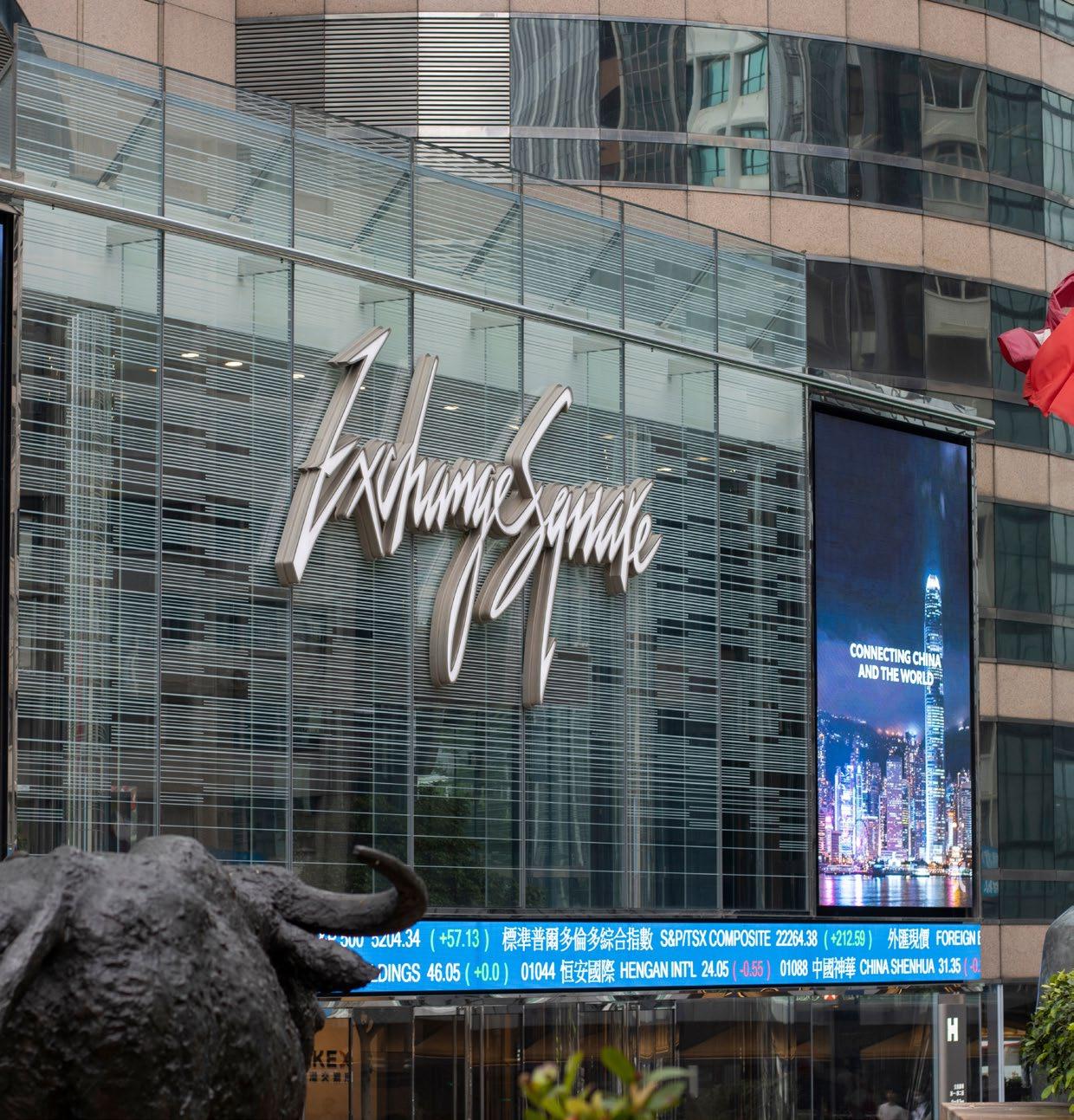



“The reforms bring Hong Kong in line with leading global exchanges,” Yiu said in an interview, adding that the introduction of an initial free float requirement strengthens the city’s regime compared with peers.
Under the rules, companies must make at least 10%, or 5% for A+H issuers, of their shares with a market value of at least $50m for Main Board listings and $15m for GEM, Hong Kong’s secondary board. Alternatively, the rule can be satisfied if at least $600m worth of shares are in public hands and available for trading on the first day.
Chow said this requirement would likely have a “positive impact on market liquidity,” as it ensures a sufficient number of shares are available for trading upon listing.
However, he cautioned that the reforms would not guarantee stronger first-day trading. Hong Kong has a mixed record on IPO debuts, such as Zhejiang Sanhua Intelligent Controls, which dropped 7% below its offer price in June.
Trading performance, he said, is ultimately shaped by factors such as company fundamentals, IPO pricing, and overall market sentiment.
Lawrence emphasised that weak first-day trading typically reflects wider market fragility. "Investors either lack conviction in valuations or remain cautious due to macro headwinds, regulatory uncertainty, or liquidity constraints," he said.
"In Hong Kong’s case, slower debut performance has mirrored weak global equity flows into China-related assets, ongoing US–China tensions, and concerns about earnings visibility in key sectors," he added.
As of March, 38 A-share listed companies had announced plans for H-share listings
Ronny Chow
Claudia Yiu
Steve Alain Lawrence PROFESSIONAL SERVICES/LEGAL
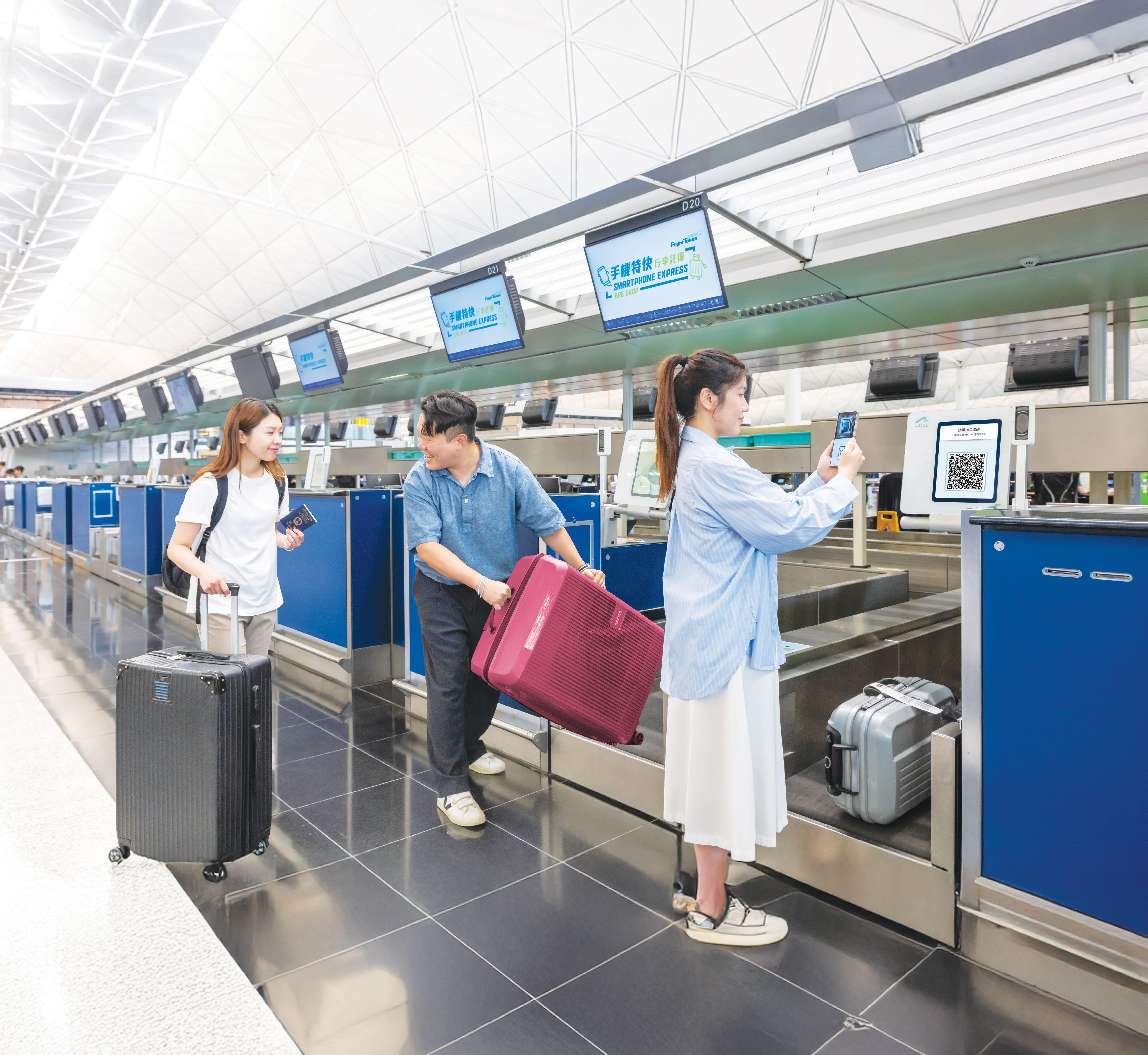
HR BRIEFING

Firms raise incentives to win scarce skilled workers
Companies are offering flexible work and training to attract workers.
Employers are intensifying efforts to hire and retain technology professionals as labour shortages and rapid digital transformation reshape the city's job market.
Software engineers, data scientists, and artificial intelligence (AI) specialists are amongst the most sought-after roles, with companies offering flexible work, training programmes and stronger employer branding to compete for talent.
“The demand for these jobs will remain robust over the next five years,” Lancy Chui, senior vice president at ManpowerGroup, Inc., told Hong Kong Business in an interview. “The ongoing digitalisation and automation trends will continue to fuel the need for tech talent.”
To stay competitive, companies are boosting employer branding, offering flexible work, and investing in development programmes.
Many companies are also rolling out various mentorship and reskilling


schemes to help workers adapt.
Benjamin Elms, managing director at Randstad Hong Kong, noted that despite government efforts to attract skilled workers, employers still struggle with scarce talent and shifting worker expectations.
“To improve the situation, companies are complementing government efforts by strengthening their employer brand,” he told Hong Kong Business in a separate interview.
A recent Randstad survey found that 24% of employers plan to invest in employer branding to improve recruitment efficiency.
'Double-whammy'
Organisations are also tailoring work culture to attract staff, focusing on stability, flexibility, and professional development, all of which are “key priorities for talent,” he added.
Randstad’s 2025 Job Market Outlook showed that 62% of employers cited skill shortage as their
top challenge, whilst 46% pointed to salary pressures. Elms said businesses are caught in a “double-whammy” — needing to cut costs in a fragile global economy whilst still offering competitive pay to appeal to both local and global workers.
Employer investments
Some firms are using technology to ease the strain. “Rather than having large teams doing data entry work, companies can now automate data collection and management, and create more high-value jobs focused on data analysis,” he said.
The managing director added that 30% of employers surveyed plan to increase hiring budgets, especially for technical roles, signalling selective investment in high-value talent.
Employers are also rewarding proven performance. “They are evaluating candidates based on their track record in delivering results in a digital-forward environment, which can give eligible candidates a strong position in salary negotiations.”
Demand for sales and business development roles remains high, according to Elms, with marketing and human resource jobs also increasingly tied to revenue targets.
Government measures
The government has been reforming its talent admission regime to address shortages. By August 2025, it had received more than 520,000 applications under its various schemes, approving over 350,000. More than 230,000 people had already arrived through these channels.
The measures include updating the city’s Talent List to align with its “eight centres” strategy, expanding the Top Talent Pass Scheme to 198 universities, and extending the first visa validity for high-income talent to three years.
In August, the Committee on Education, Technology and Talents held its first session with a new Panel of Advisors, with the aim of making Hong Kong an international hub for skilled professionals.
But even with reforms, experts warn the challenge is far from over.
“Whilst these strategies are effective, their sustainability may be challenged by economic pressures, necessitating continuous investment in employee engagement and development,” Chui said.
Three of ten employers plan to increase hiring budgets especially for technical roles
HR & EDUCATION
Lancy Chui
Benjamin Elms











How companies can use the new cybersecurity bill to their advantage
The new cybersecurity law in Hong Kong is a wake-up call. During Easter, multi-national retailer Marks & Spencer suffered a severe cyberattack, which wiped $5.32b (£500m) off its stock value, with a further financial impact of $3.19b (£300m).
Worse, customer data was stolen, including personal information such as names, addresses, phone numbers, and order history.
Hong Kong recently passed the Protection of Critical Infrastructure (Computer System) Ordinance, which is scheduled to take effect on 1 January 2026. The changes are limited to critical infrastructure such as banking and healthcare.
However, all companies can incorporate some of the restrictions into their own infrastructure to better protect themselves.
Many of these changes are essential to all businesses because they codify best practices in cybersecurity and also have significant implications for companies operating in critical infrastructure sectors.
The four key changes are stricter cybersecurity requirements for organisations managing critical infrastructure; government authority to access computer systems in case of cybersecurity incidents has raised concerns amongst some international tech firms; mandatory security audits, risk assessments, and incident reporting; and fines of up to $5m for non-compliance.
Impact on businesses operating in the critical infrastructure sector Companies in industries such as energy, banking, telecommunications, healthcare, and transport will face heightened regulatory scrutiny and must implement stringent security measures to comply with the law.
One of the most significant changes is the requirement for businesses to conduct regular cybersecurity audits and risk assessments to identify and address vulnerabilities before cybercriminals can exploit them. Organisations will also need to submit security management plans and incident response strategies to the authorities, demonstrating their preparedness for potential cyber threats.
Companies must report cybersecurity incidents within a strict timeframe – serious breaches must be reported within 12 hours, whilst other incidents must be disclosed within 48 hours. This requirement aims to minimise the impact of cyberattacks on essential services, but it also places considerable pressure on companies to maintain robust monitoring systems and response protocols.
Cybersecurity is no longer just an IT issue – it’s a core component of risk management, much like climate resilience.
For real estate investors and operators, a single breach can wipe out years of value creation. The M&S attack is a stark reminder that digital vulnerabilities can have very real financial consequences.
Companies that fail to meet the cybersecurity standards set by the law could face fines of up to $5m. This creates a strong incentive for businesses to invest in cybersecurity infrastructure, staff training, and external security expertise to ensure they meet regulatory expectations. Beyond compliance, the law is expected to influence business operations and investment decisions. Some international firms have expressed concerns that the stringent regulations could deter technology

ANDREW LAU Director, ESG Advisory, Asia Colliers Hong Kong
investments in Hong Kong, particularly for companies that rely on cloud-based services and cross-border data transfers.
The government’s authority to access computer systems in the event of cybersecurity incidents has also raised concerns about privacy and operational impact amongst multinational corporations.
The G in Environmental, Social and Governance policy
The law has significant implications for Environmental, Social, and Governance (ESG) principles, particularly in the Governance aspect.
The law requires businesses to enhance data protection and risk management – key components of ESG governance. Companies must conduct regular audits and report incidents promptly, ensuring transparency and accountability in their operations.
The new cybersecurity law in Hong Kong is a wake-up call. Whilst it targets critical infrastructure, the smartest companies – especially in real estate – will go beyond compliance.
Proactively adopting these standards is not just about avoiding fines but it is also about protecting asset value, investor confidence, as well as operational continuity.
From a social responsibility perspective, the law protects critical infrastructure, ensuring reliable access to essential services. Businesses that comply with cybersecurity standards demonstrate a commitment to consumer protection, strengthening trust and reputation amongst stakeholders.
Additionally, ESG (environmental, social, and governance) ratings and investment impact are closely tied to cybersecurity resilience. Investors are increasingly assessing cybersecurity preparedness when evaluating ESG performance. Companies that fail to meet cybersecurity standards may face lower ESG ratings, which can impact their investment attractiveness as well as long-term sustainability.
A holistic approach to integrating cybersecurity in ESG
Integrating cybersecurity into an ESG strategy requires a holistic approach that aligns security measures with governance, social responsibility, and sustainability goals.
Businesses can start by conducting ESG-aligned cybersecurity risk assessments, ensuring that digital threats are mapped to fulfil broader ESG objectives. For example, protecting renewable energy systems from cyberattacks contributes to environmental sustainability, whilst securing healthcare data reinforces social responsibility.
Embedding cybersecurity into governance structures is another crucial step. Organisations should integrate cyber metrics into ESG disclosures, collaborate with compliance teams to align policies with global regulations, and establish board-level cyber-ESG committees to prioritise investments in secure digital infrastructure.
Transparent reporting is essential – stakeholders expect companies to disclose their cybersecurity risk management strategies and demonstrate a commitment to continuous improvement.
Cybersecurity is now a pillar of good governance. Investors scrutinise companies’ digital risk management as part of ESG performance.

Five tips for commercial space leasing for startups and SMEs
Before you start searching for an office, it’s crucial to clearly define your business requirements.
Leasing an ideal office in Hong Kong could be challenging to many startups and small to medium-sized enterprises (SMEs).
The city’s competitive real estate landscape, coupled with various procedures and regulations, can make the process daunting. Nevertheless, with the right approach and understanding, you could secure a suitable space that meets your business requirements. Here are five essential tips to guide you through the process.
How to determine what you need?
Before you start searching for an office, it’s crucial to clearly define your business requirements. There are a few things to consider:
Firstly it’s about the size. Determine how much space you will need based on your current team size and anticipated growth.
A good rule of thumb is 100-150 sq. ft. net of office space for each person. This includes not just the desk but shared facilities such as meeting rooms, reception, and storage amongst others.
Secondly, it’s the type of space you’d need. Decide whether you need a traditional office, a co-working space, or a serviced office. Co-working spaces can offer flexibility and lower costs, which is particularly beneficial for startups that may not need a permanent office.
Of course you’d need to consider the location – the proximity to clients, suppliers, and industry peers is essential from an operation perspective when you select the location. Traditional CBD areas like Central or Tsim Sha Tsui are prestigious but come with higher rental costs. Alternatively, consider emerging districts that may offer more affordable options and a vibrant community.
What is Property Classification?
In Hong Kong, office properties are typically classified as Grade A, Grade B, or Grade C, according to the building specifications, facilities, and the management services as defined by the Government:
For Grade A buildings, they are modern with high-quality finishes and flexible layouts, with effective central air-conditioning, good lift services and professional management. The floor plates would be large and spacious with well decorated lobbies.
Whilst for Grade B buildings, they offer ordinary design with good quality finishes, with average-sized floor plates and flexible layout. Moreover, some landlords of Grade B buildings are more flexible in


MICHAEL WONG Senior Director Value Properties
terms of the tenant mix and they would consider leasing to tenants operating wellness studios, education centres, medicals, boutique beauty salons to drive footfall.
When renting office space, rent is usually based on the gross area, which includes shared spaces like toilets and common corridors. To know how much space you can actually use, ask for the usable (net) area—this excludes common areas and curtain walls. Always confirm this with an on-site measurement before signing the lease.
How to calculate costs?
When you are working on the budget for the real estate, there are different costs to be considered, in addition to the monthly rent.
For example, management fees could vary significantly between properties, so be sure to clarify them with the landlord. Other utility charges, such as electricity and air-conditioning charges may incur.
Also, as a tenant, you may bear the Government Rates and landlord to bear the Government Rents respectively. But this would be subject to your negotiation with your landlord.
What to negotiate in my lease?
Negotiating the terms of your lease is crucial to securing a favourable deal.
When it comes to lease, the first thing to decide is the lease duration. The standard commercial lease length in Hong Kong ranges from two to three years fixed. Determine what works best for your business, especially if you anticipate growth or changes in your operations.
As for the rent-free periods, many landlords offer rent-free periods to accommodate renovation needs to the tenant. Ensure this is clearly stated in the tenancy agreement, as it can provide significant savings during your initial setup.
There is also a renewal option to consider. If you are leasing a bigger space, some landlords may consider offering a renewal option to the tenant, with an open market rent, or pre-determined renewal rent, subject to negotiation.
Discuss who is responsible for various costs, such as maintenance and management fees, and ensure these terms are documented in the lease.
When to do an inspection and what to look for?
Before finalising any lease, you should conduct a detailed inspection of the property. In particular, you should be mindful of the current condition of the space and look for any signs of damage or required repairs. You should also look at the building facilities and ensure the space meets your operational needs, including ceiling height, power supply, and layout, and other needs to consider.
Last but not least, there should be a handover inspection conducted. During the handover process, document the condition of the space meticulously. Note any existing damages and ensure they are acknowledged in the handover document. A thorough inspection can help you avoid disputes later and ensure that the space is suitable for your business operations.

Beat Inflation with Property that Pays Like a Bond

Introducing Social Housing
Government-Backed Rent
Secure, reliable income paid via regulated housing associations. Inflation-Linked Yields
Your rental income rises annually with the Consumer Price Index (CPI).
Zero Voids & Management Costs
A truly hands-off investment with no hidden fees.
Ethical Impact
Your investment provides vital housing for vulnerable families.
WHY SOCIAL HOUSING?
This is a property model built on secure, government-backed yield, not speculation. With the UK facing a structural housing shortage— over 1.2 million households on waiting lists—the demand for social housing is consistent and independent of market cycles. It offers the stability of a bond with the benefits of freehold property ownership.
THE INFLATION ADVANTAGE
While inflation erodes the value of many assets, this investment is designed to protect it. Leases are directly linked to inflation, ensuring your returns grow over time and your purchasing power is preserved. It’s a resilient strategy for long-term financial security.
ETHICAL RETURNS
Beyond the compelling financial returns, this is an investment that makes a tangible difference. You directly contribute to solving the UK housing crisis, creating a positive social impact while building a secure and profitable portfolio.
PATEK PHILIPPE
GENEVE
BEGIN YOUR OWN TRADITION




A STORY ABOUT A SHARED PASSION. INSPIRED BY A TRUE STORY.
